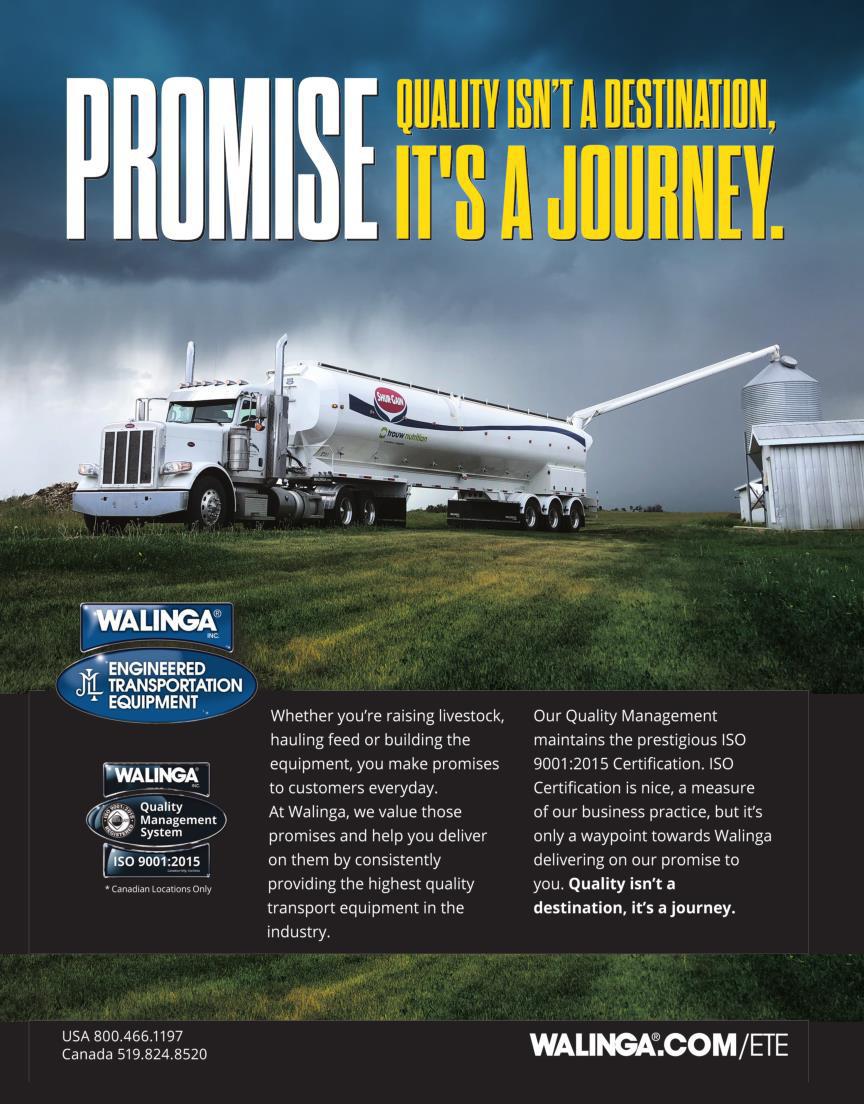










Rectangle slots create 58.5% of total opening to reduce manure buildup resulting in a cleaner floor.

Each 2’ x 4’ panel weighs 6.7 pounds...over 3/4 of a pound more than competitive brands. 21 longitudinal ribs compared to others with only 17 ribs provides a level slat surface with only three support runners.


Multiple interlocking edge tabs reduce flexing to promote a flat, stable walking surface. Arch latitudinal ribs furnish greater support to the longitudinal ribs.

Creekview Mfg., 15
717-445-4922; https://creekviewmanufacturing. com
Eagan Mfg., 16
870-878-6805; www.eaganmfg.com
Hog Slat, 3
800-949-4647; www.hogslat.com
Kelley Mfg., 17
800-444-5449; www.kelleymfg.com

Kunafin (The Insectary), 28
800-832-1113; www.kunafin.com
L.B. White, 18
608-783-5691; www.lbwhite.com
Metzer Farms, 20
831-240-1946; www.metzerfarms.com
National Incinerator, 14
205-589-6720; www.nationalincinerator.com
Neogen, 24
800-234-5333; www.neogen.com
Northwest Envirofan, insert 800-236-7080; https://envirofan.com
NPFDA, 19
912-439-3603; www.npfda.org
Overdrive Lighting, 19 800-657-0509; www.aglights.com
Precision Lighting, 1, 2, 24, 30 800-737-1837; www.poultrylighting.com
Star Labs, 27 800-894-5396; www.primalac.com
The Egg Carton Store, 28 866-333-1132; www.eggcartonstore.com
VAL-CO, 26 800-998-2526; www.val-co.com
Walinga USA, 32 800-466-1197; www.walinga.com
Weightech, 13, 21 800-457-3720; www.weightechinc.com
General Manager
Cindy Wellborn
770-718-3443
cwellborn@poultrytimes.com
Editor
David B. Strickland
770-718-3442
dstrickland@poultrytimes.com
Digital Manager
Rachel Danford
770-718-3438
rdanford@poultrytimes.com

Senior Sales Executive
Stacy Louis
770-718-3445
slouis@poultrytimes.com
Sales Support
Janice Sisk
770-536-2476
jsisk@poultrytimes.com
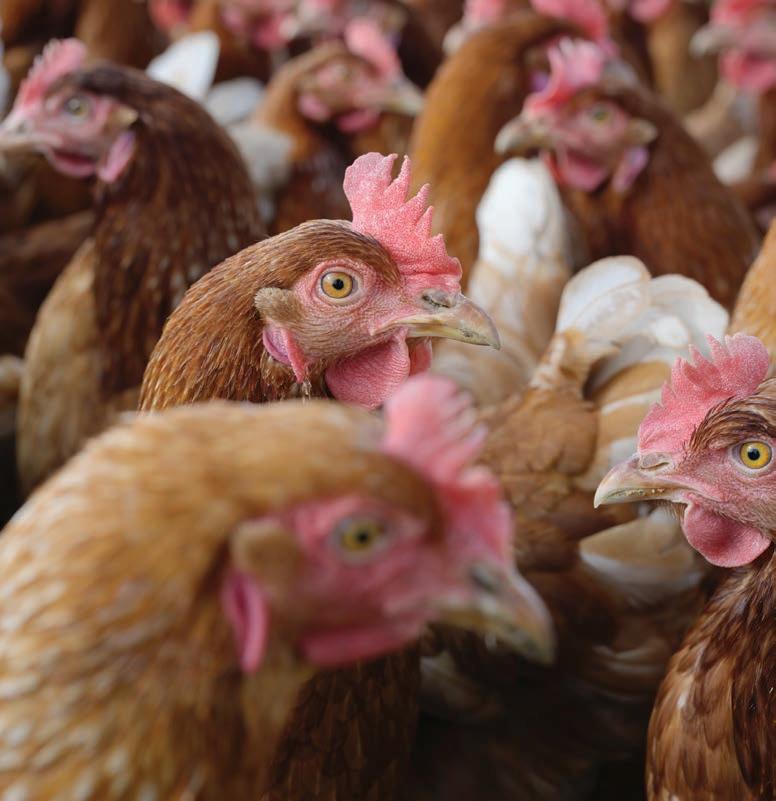
Content Writer
Elizabeth Bobenhausen
770-209-3335
ebobenhausen@poultrytimes.com
in this publication by authors other than Poultry Times staff are those of the respective author and do not necessarily reflect the opinions of Poultry Times.
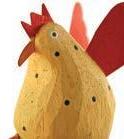
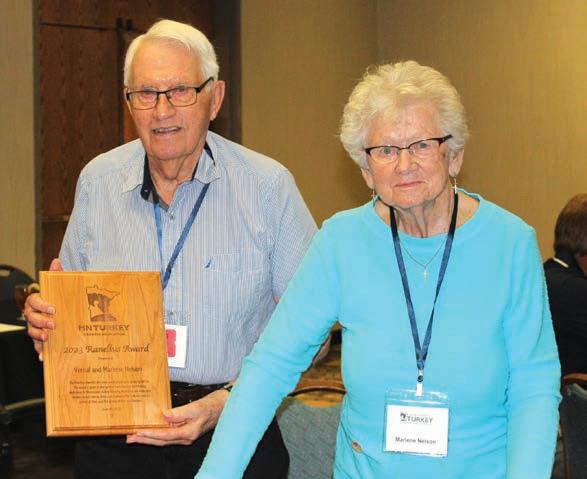
Advertisement content is the sole responsibility of the advertiser. Poultry Times assumes no liability for any statements, claims or assertions appearing in any advertisement.
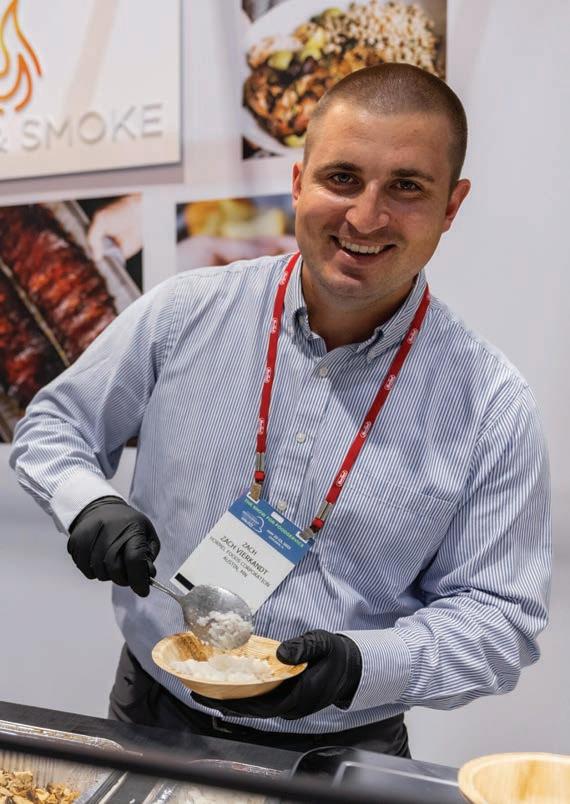
GAINESVILLE, Ga. — U.S.
Sens. Chris Coons (D-Del.) and Roger Wicker (R-Miss.) have announced the expansion of the Healthy Poultry Assistance and Indemnification or HPAI Act. Under the current law, if a case of avian influenza is detected, farms and other facilities within a 10-kilometer control area are not allowed to place flocks until the virus is under control.
The bill allows for poultry producers that have flocks that are infected with avian flu to receive compensation from the USDA. The new bill says that poultry producers that are within the control area are eligible to receive payment as well.
Included in the bill:
• “Expand USDA-APHIS compensation to all poultry farmers in a HPAI control area; the program currently only compensates farmers whose flocks test positive, not those in the control area who are disallowed from placing flocks until the virus is contained, which sometimes takes months.”
• “Simplify the calculation of indemnity. The payments to farmers will be calculated based on the average income they earned from the last five flocks. This method is more transparent and ensures that farmers will not face a cash shortfall in the face of an HPAI outbreak in their area.”
Coons and Wicker are co-chairs of the Senate Chicken Caucus. They were joined by 11 of their other colleagues in support of this bill.
“This bipartisan bill would ensure that every farmer who does their part to contain an outbreak is fairly compensated for their financial harm, and it simplifies the compensation process so farmers can get back on their feet quickly after losing their flock,” Coons said, adding that, “as Co-Chair of the Senate Chicken
Caucus, I urge my colleagues to support this bill that will ensure a robust poultry supply chain, keep food costs low, and assist our hardworking farmers.”
“As every farmer knows, unexpected events can take a heavy toll. Recent avian flu outbreaks hurt poultry growers and layers, and control areas made it harder for them to recover,” Wicker added. “This legislation would compensate workers in affected zones so they can get back to producing quickly.”
The bill began in Delaware; with Coons noting, “Delaware has the largest per capita chicken industry in the country, and Delaware’s independent family farmers and poultry growers are all too aware of the harm avian flu can cause after last year’s outbreak.”
“We greatly appreciate Senator Coons, Senator Cardin, Senator Van Hollen, and the rest of the HPAI Act’s cosponsors for recognizing how many family farmers raising chicken are impacted by HPAI cases, even when their farms are not the ones at the center of an outbreak,” Holly Porter, Delmarva Chicken Association executive director, said. “No one in Delmarva’s chicken community wants to see another HPAI case, but should it occur, this bill would ensure farmers in the control zone are compensated for their lost income due to compliance with efforts to contain the spread of the disease. We’re urging Congress
to pass this legislation on behalf of farmers who forgo income to keep the food supply safe for everyone.”
“Eradicating highly pathogenic avian influenza, or HPAI, requires swift industry and government adaptation and intervention. Some groups of farmers lost income when their farms were drawn into HPAI control zones, but because their flocks did not have HPAI, did not qualify for USDA indemnification assistance,” Porter said.

She added that, “This amendment to the 2023 Farm Bill will ensure that all farmers financially impacted by HPAI will receive reasonable compensation. Government protections for farmers can mean the difference between continuing a prosperous enterprise or enduring an emotional and financial calamity. We are very thankful to Senator Coons’ office for ensuring that all farmers impacted by control measures for HPAI are appropriately compensated for their lost income.”
Other representatives of the poultry industry, as well as governmental officials have expressed their reaction.
Mike Brown, National Chicken Council president, said that he wishes, “... to thank Senators Coons and Wicker for introducing this bipartisan bill that will help protect one of our most important assets –our farmers. This legislation recognizes the fact that highly pathogenic avian influenza can have a detri-
mental effect on any farm in an outbreak control zone, not just the farm that tests positive. NCC is proud to support this bill.”
“The proposed legislation to amend the Animal Health Protection Act is significant in ensuring fair compensation to our commercial industry growers who may incur losses due to an animal health disaster,” Delaware Secretary of Agriculture Michael T. Scuse said. “Having to experience this loss creates a hardship for the grower, both financially and mentally, but it also creates a negative financial impact on nearby farms that are not allowed to restock because they are in a control area. Although the commercial poultry and layer companies have been compensated in the past, growers within a control area have been left out. Passing this legislation to compensate affected farms is the right thing to do.”
“Producers who lose their flocks due to control measures to combat devastating diseases potentially lose all their income for a significant period of time,” Bill Powers, Delaware Farm Bureau president, added. “The income is gone, but the farm mortgage is still due, plus other expenses. Senator Coons has recognized the inequity of the lack of a federal safety net for these farmers in the year 2023. Delaware Farm Bureau applauds his bipartisan initiative and leadership, and we fully endorse this bill.”
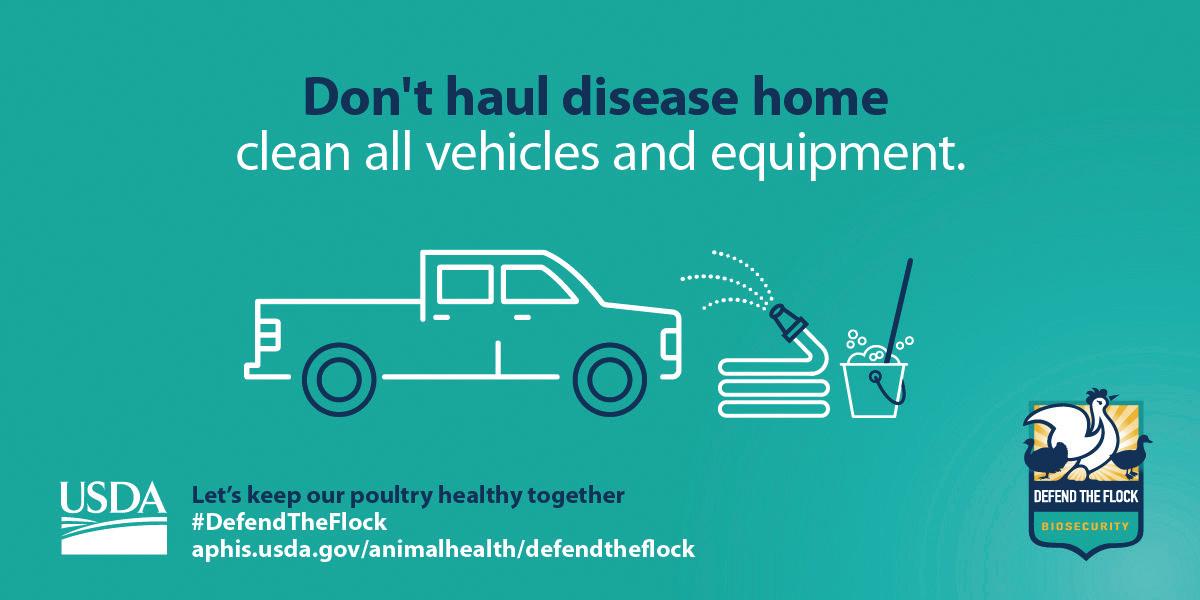 By Elizabeth Bobenhausen Poultry Times staff ebobenhausen@poultrytimes.com
By Elizabeth Bobenhausen Poultry Times staff ebobenhausen@poultrytimes.com
This is the fifth in a series from Poultry Times regarding the importance of biosecurity. This article focuses on keeping vehicles clean and safe and restricting or closely monitoring the flow of visitors to a facility.
GAINESVILLE, Ga. — According to the USDA, biosecurity is defined as “everything people do to keep diseases and the viruses, bacteria, funguses, parasites, and other microorganisms that cause disease away from birds, property, and people.”
The USDA names two types of biosecurity; “structural biosecurity” and “operational biosecurity.” The USDA website describes structural biosecurity as “measures used in the physical construction and maintenance of coops, pens, poultry houses, family farms, commercial farms, and other facilities.”
Operational biosecurity is defined as “practices, procedures, policies that are consistently followed by people.” When it comes to visitors and vehicles entering a farm, that is operational biosecurity.
The University of Georgia’s Poultry Science Department wrote an article titled “Biosecurity Basics for Growers.” They said microorganisms can be spread to poultry because of tainted equipment or the clothing of visitors. Viruses can be spread from one birth to another, transport vehicles, egg flats and cases.
According to the UGA poultry science department, the most dangerous element to biosecurity is human transmission to birds. Visitors should never be permitted. If they must visit the farm, a good reason is needed. The proper personal protective equipment is required when visitors are around poultry flocks.
Farmers should provide PPE such as boots, coveralls and headgear to all visitors. This includes people
who have had recent contact with other birds, utility personnel, relatives, friends and neighbors. Visitors should always obtain permission to enter poultry facilities from the farmer or other personnel. When leading visitors through the facility, start at the younger birds and with the older birds.
To keep track of who has been on the farm, records should be kept because if an incident occurs the farmer knows where it started.
Iowa State University gives an example of what sign in form might possibly say:
If I enter the Perimeter Buffer Area, at a minimum I agree to the following biosecurity measures:
• Shower and change into clean clothes and footwear prior to my arrival at the site.
• After showering and changing into clean clothing and footwear offsite, I will not have any contact with poultry or facilities where poultry, live or dead, are held (e.g., my home, other premises, auction market, buying station, slaughter plant, rendering plant) prior to my arrival onsite. Once onsite, I will avoid areas where vehicles that have not been cleaned and disinfected have driven.
• I will maintain a clean vehicle interior, free from con-
tamination of poultry litter/ manure and soiled clothes, footwear, or other items.
• I agree to follow additional biosecurity measures once on the premises based on my job duties that reduce the risk of introducing disease to the poultry. If I observe or perform a breach of biosecurity (accidental or intentional), I will promptly inform the Biosecurity Coordinator of the date, time, and nature of the incident.
Signs can be posted on facilities where access is restricted. A farmer can also educate the local community about the safety of flocks. To educate the community, a farmer could send an article about the safety of flocks to local newspapers, as well as attending community meetings or social events. A farmer could speak to groups and individuals. Farmers should never go to other poultry farms. If they must visit other farms extra precautions should be taken. The farmer should shower and wash his or her vehicle before going to the other farm.
The USDA gives tips for people visiting farms and keeping the birds healthy on their website:
1. Maintain routines so that everyone who comes into contact with your flock follows the same procedures.
Don’t be afraid to change these procedures if you see a problem or if something’s just not effective or practical. There’s always room for improvement.
2. Offer regular training on biosecurity practices to your current employees and any new hires. Training increases compliance and helps make sure everyone follows procedures consistently.
3. Use personal protective equipment like washable footwear or shoe covers, gloves, coveralls, and hair coverings when handling birds. These items should be worn only while caring for your poultry, never elsewhere and be changed between bird enclosures to prevent disease spread.
4. Give visitors and family members personal protective equipment to wear when they are in contact with your birds.
5. Always ask visitors if they’ve been in contact with wild birds or pet birds or if they have their own poultry. If so, they should not go near your flock. Some avian disease agents can survive in a person’s nose, without actu-
(Continued on next page)
WASHINGTON — During a recent state visit between India’s Prime Minister Narendra Modi and President Joe Biden in Washington in June, various new initiatives between the nation’s involving trade, defense partnerships, energy, health, technology, and global growth were discussed.
“We’re demonstrating once more how India and the United States are collaborating on nearly every human endeavor and delivering progress across the board,” Biden said during a joint press conference. “Our economic relationship is booming. Trade between our countries has almost doubled over the past decade to more than $191 billion, supporting tens of thousands of good jobs in both India and the United States.”
“Today is a day that has special importance in the history of IndiaAmerica relations,” Modi said during the press conference. “Our discussions today and the important decisions we have taken have added a new chapter to our comprehensive and global strategic partnership. They have given it a new direction and a new energy.”
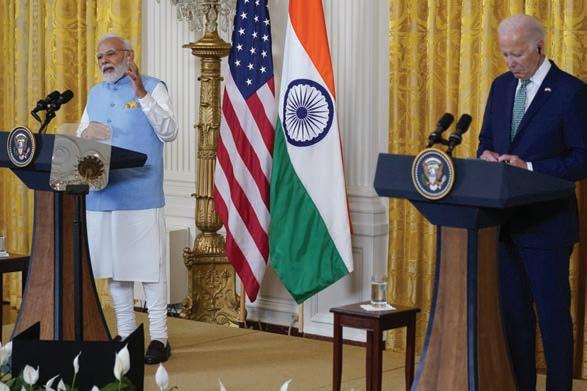
“Friends, a trade and investment partnership between India and America is important not only for our two countries, but for the global economy as well,” Modi added. “To-
ally infecting the person, for 2 days.
6. Clean and disinfect equipment to remove feces, feathers, and litter. Disease agents can survive for months inside these organic materials, so make sure nothing is tracked into or out of poultry houses or pens.
7. Do not share tools, poultry supplies, or lawn and garden equipment with other flock owners or neighbors. If you must, be sure to clean and disinfect the items before they reach your property and before returning them.
8. Know the warning signs of poultry disease, like changes
day, America is India’s biggest trade partner. We have decided to resolve long-pending trade-related issues and make a new beginning.”
The U.S. Trade Representative’s office and the USDA noted that India has agreed to remove some retaliatory tariffs on some U.S. products, many of which are agricultural.
This cut in tariffs will expand and restore agricultural market opportunities for U.S. producers, the USTR office said in a release.
“Prime Minister Modi’s visit has
in how much your birds eat or drink, increased deaths in your flock, or general malaise.
The Center for Food Security and Public health is within Iowa State University. The university put out an article regarding vehicles entering and leaving farms. The article said vehicles can be a means of transmission of viruses such as avian influenza because of the roadways. It is recommended that farmers assign vehicles that have been clean or disinfected to the perimeter buffer area (PBA).
According to Lancaster.com the perimeter buffer area can be defined
underscored the importance of the U.S.-India bilateral relationship and our cooperation on a range of shared priorities,” U.S. Trade Ambassador Katherine Tai said. “Today’s agreement represents the culmination of intensified bilateral engagement over the last two years, including through the U.S.-India Trade Policy Forum, to deepen our economic and trade ties.”
“As a result of our work, U.S. agricultural producers and manufacturers will now enjoy renewed access to a critical global market and we will strengthen our trade relationship with one of our closest partners,” Tai
as the point where many farms will disinfect vehicles coming onto the farm. This is also the outside line where only those vehicles that are necessary can come onto the farm such as feed trucks and egg trucks for a layer farm. When the vehicles arrive at the perimeter buffer area, it is important that they are cleaned and disinfected.
Farmers must follow a biosecurity plan when disinfecting vehicles. The university advises that trained employees clean and disinfect vehicles. Visitors must remain inside the vehicle while it is being cleaned and disinfected. If a person has to leave the vehicle, they should follow a biosecurity plan. Records should be kept of the vehicles and equipment that
added. “I look forward to continue to work with my counterpart, Minister Goyal, as we identify additional ways to bring our people and our economies together.”
With the focus on how this recent action will affect U.S. farms, U.S. Agriculture Secretary Tom Vilsack also issued a statement following the one released by the USTR office.
“Removal of these tariffs is a major win for America’s farmers, building on the $15 billion in new or preserved market access for agricultural products that USDA and USTR have delivered under the Biden-Harris administration,” Vilsack said. “Producers will now be able to increase sales of apples, chickpeas, lentils, almonds and walnuts to one of the United States’ top trading partners. USDA applauds the Office of the Trade Representative for their diligence in reaching this agreement and for their leadership in strengthening our relationship with India.”
“The outcome also underscores the competitiveness of America’s high-quality food and agriculture products, which have been exported at record levels over the past two years,” Vilsack added. “The BidenHarris administration continues to prioritize new, more and better markets on behalf of American agriculture and is proud of the economic opportunity this creates for workers and for families.”
move around or go into and out of the farm.
Vehicles should be set aside for use inside perimeter buffer area or around the farm. If the vehicles have to leave the farm or perimeter buffer area, when they return, they must be cleaned and disinfected. In some cases, the vehicles may remain on the edge of the perimeter buffer area to help with tasks with farm personnel. This could include feed or supply delivery.
For inclement weather, farmers must have a contingency plan that follows a biosecurity plan. A biosecurity director must approve all equipment that comes into the farm. However, Iowa State University discourages any equipment coming into the farm.
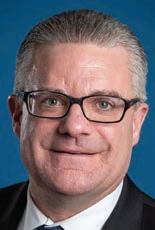

TUCKER, Ga. — The U.S. Poultry & Egg Association announces the promotion of Gwen Venable to executive vice president – expo & communication services. She will assume the position as Nath Morris transitions to president.
president of communications. Going forward, she will also be responsible for the association’s International Poultry Expo, and the overall management of the International Production & Processing Expo (IPPE).
Venable
Venable has been on the USPOULTRY staff since December 2010. She leads USPOULTRY’s communications program, with her prior position being executive vice

Venable holds a bachelor and master of business administration degree from the University of Georgia. She also holds a Certified in Exhibition Management® (CEM) designation, which is a globally recognized designation that demonstrates the highest pro-
fessional standard throughout the exhibitions and events management arena. She has served on the International Association of Exhibitions and Events (IAEE) Southeastern Chapter board of directors since 2012 and was named chair in 2021. In 2022, she served as an ex-officio director of the IAEE board of directors, representing the Chapter Leaders Council. She currently serves on the IAEE international member engagement committee.
“IPPE continues to expand in
size and scope. I look forward to continuing to work with our partners, the American Feed Industry Association and the North American Meat Institute, and our exhibitors to further grow the success of this international event,” Venable said.
“Gwen will continue to lead the strategic communications, public relations, marketing and promotion for the association’s industry services and events and the annual IPPE,” said Nath Morris, USPOULTRY president-elect. “Her previous industry experience being the lead exhibitor and marketing contact of a major processing equipment manufacturer brings an additional and important perspective to the success of IPPE.”
CHICAGO — American Egg Board senior executives were recognized recently as transformative industry leaders and drivers of innovation in agriculture with awards at the Farm Foundation’s 90th Anniversary Gala. The awards honor leaders and change makers who exemplify Farm Foundation’s mission and values.
• Farm Foundation 2023 Emerging Leader Award Winner: AEB President and CEO Emily Metz.

The award “recognizes a leader in agriculture under age 40 who is on the trajectory to make transformational change within the agriculture and food sectors.”
Metz has distinguished herself as a visionary and change agent among a new generation of senior leaders in agriculture. Since becoming CEO of the AEB in June of 2020 at age 32 — and one of the youngest CEOs in U.S. agricultural commodities — Metz has restructured and modernized the national marketing checkoff and set forth a bold strategic vision with an eye toward agility, innovation and future-proofing the egg industry for long-term growth.
Many of Metz’s achievements at AEB constitute egg industry firsts, including establishing the egg industry’s first proprietary insights hub and,
notably, the egg industry’s first-ever innovation center.

• 2023 Farm Foundation Innovator of the Year Award Finalist: AEB Vice President Innovation and Customer Engagement Nate Hedtke.
The award recognizes “change makers that are integral to solving some of the most influential challenges facing the agriculture and food industries today.”
As AEB’s vice president of innovation and customer engagement, food industry veteran Hedtke led development and the successful launch late last year of the American Egg Board’s Eggcelerator Lab — a network of innovation and insights capabilities, resources and expertise designed to bring new egg-based ideas to market. As the innovation center for the U.S. egg industry, the Eggcelerator Lab is developing market-ready products representing new uses for eggs and egg ingredients and new ways to consume eggs. Hedtke was a finalist along with two other nominees for the award and was recognized as such last night.
“To be recognized by Farm Foundation — an organization on a mission to accelerate practical solutions for agriculture — says more about our
egg industry, our farmer leadership and members, and the AEB’s talented team of dedicated professionals than it does about any one person,” Metz said. “I am proud of our team and what we’ve accomplished, and I am honored and deeply grateful to work for a bold, proactive, risk-taking community of egg farmers who value feeding the world and safeguarding a bright future for eggs.”
“These leaders showcase the innovation, education and policy levers we use to advance our mission,” said Shari Rogge-Fidler, Farm Foundation president and CEO. “They put their skills and experience to work to advance food and agriculture for the benefit of farmers and producers, their respective industries, and consumers everywhere. We are delighted to highlight their extraordinary impact.”
WASHINGTON — August Recess is just around the corner here in Washington, starting on July 31 for both the House and Senate.
While the halls of Congress will be quiet as members clear out until September, this is a busy time for them to be visiting their home districts, meeting with the men and women they represent. It’s also a prime time for Farm Bureau grassroots members to engage on top issues for agriculture as our senators and representatives will be right in our hometowns and neighborhoods.
The formal practice of August Recess goes back more than 50 years. It was established by an act of Congress in 1970, after legislating at the national level had become a full-time job. Members of Congress recognized then, and now, the importance of getting back home to meet with constituents.
From county fairs to town hall meetings, there are a number of opportunities to meet with your representatives and for them to
hear from you. I encourage you to get out there, show up to these events and maybe even host an event in your community. Your county or state Farm Bureau is a great place to start to learn more about how you can be involved.

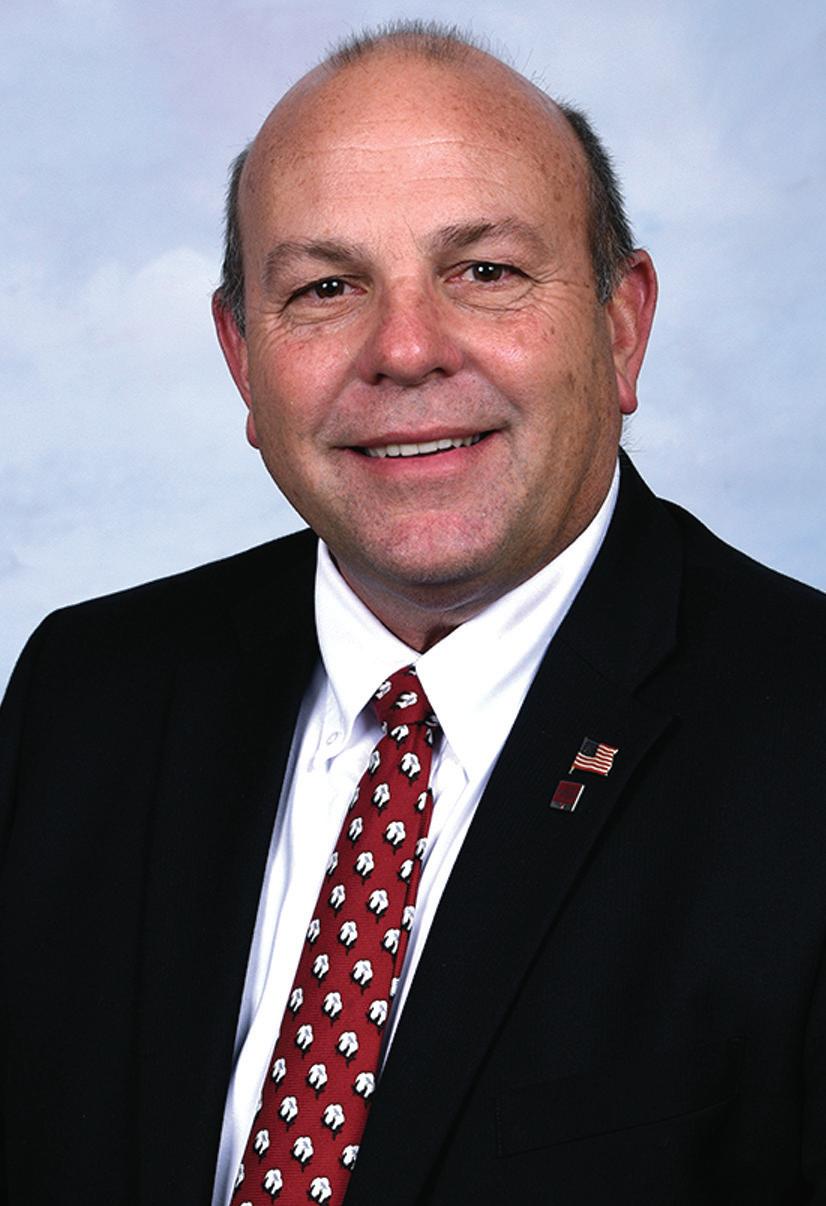
Nothing can replace sitting down for a face-to-face conversation. We can solve some of our greatest challenges by sitting down and talking things through.
Our team in Washington often hears from members of Congress and their staff about how much they value meeting with farmers and ranchers, and how those meetings help shape their work throughout the year. At American Farm Bureau, we are honored to host hundreds of farmers every year when you come to Washington to visit congressional offices. But this is the time of year when Washington comes to you, and I urge you to take advantage of this time.
You can reach out to your congressional district and state offices now to schedule a visit
with your representative while they’re back home.
Invite members of Congress and their staff out to your farm or ranch. They will surely carry that experience with them. What they see firsthand — how you and your family pour your heart and soul into caring for the land and growing the food, fiber and fuel we all rely on — will inspire them and impact their decisions back in Washington.
Finally, I’d be remiss if I didn’t remind you that, among all those members of Congress heading home for recess, there are 260 who have never worked on a Farm Bill. Does one of those members represent you?

Now is the time for them to
meet a farmer and hear directly from you about how important this legislation is to your farm and our food supply. Every meeting, every conversation makes a dif-
ference.
Let’s work together to engage our lawmakers and help them make the most of their August Recess. And let’s send them back
to Washington with a clear assignment this fall: to pass an effective 2023 Farm Bill that protects our farms, ranches, and food security for all Americans.
“
What they see firsthand — how you and your family pour your heart and soul into caring for the land and growing the food, fiber and fuel we all rely on — will inspire them and impact their decisions back in Washington.
LE FOEIL, France — In June, Hubbard organized its biennial Hubbard Premium Forum. About 150 attendees came from 29 countries all over the world to the area of Evian on the southern shores of Lake of Geneva in France. During this forum Hubbard experts and external speakers shared their experience with the Hubbard Premium breeds with the audience and gave insights into different types of slower growing chickens markets and management practices.
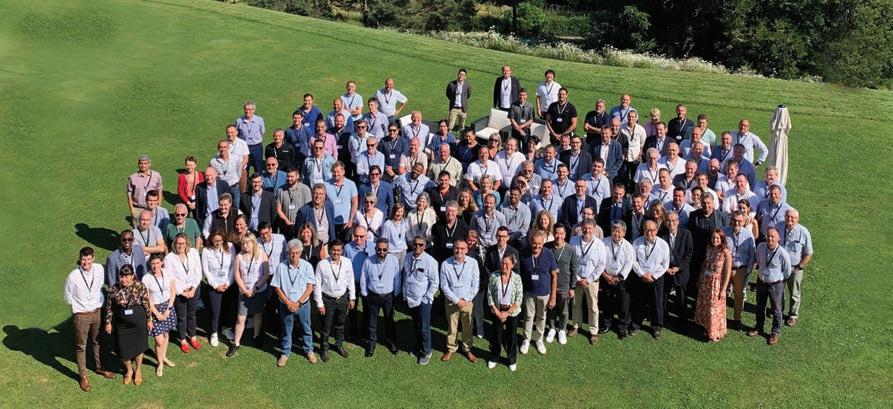
In addition to the “social” component of sustainability, by using slow(er) growing premium chickens, also the other two elements (“Economics” and “Environmental footprint”) were addressed, the company noted.
Jean Lebec, Hubbard sales manager-France, introduced the attendees to the current organization and situation of the French broiler market before Bruno Briand, Hubbard global sales director, explained the large Hubbard Premium product range serving a wide variety of markets covering Dual Purpose, Label Rouge, Organic, 56-day Free Range and the more recent indoor systems such as Better Chicken Commitment (BCC).
An update on the development of the BCC was then shared by Paul van Boekholt, Hubbard business manager-Northern Europe. Olivier Rochard, Hubbard MD, and Frédéric Fagnoul, Hubbard R&D director, highlighted that Hubbard continues to invest heavily in the Premium selection centers and technologies to lower the carbon footprint of the Hubbard Premium lines by further improving robustness, FCR and meat yields using the most modern selection techniques.
James Bentley, Hubbard global technical director, focused on Hub-
bard’s experience with the use of alternative feed ingredients and optimized feed formulations for its large Premium product range to support Hubbard customers to reduce their carbon footprint. At the same time, he added that there is a big need for more specific research with slower growing chickens and to use a standardized model to compare the environmental footprint between production systems and countries.
Claude Toudic, Hubbard Premium product manager, Mathieu Lardière, Hubbard technical transfer manager, and Victor Lesigne, Hubbard technical manager EMEA, respectively shared detailed information about how to move away from fossil fuels in the near future, how well the Premium parent stock are performing in the field, and how to further optimize breeder performance using Hubbard’s husbandry and management recommendations. Lardière also introduced the updated Performance Objectives for the Hubbard JA87 and Hubbard REDBRO parent stock females.
François Cadudal of GIRA Food provided a comprehensive summary on the dynamics of the broiler
chicken meat segmentation in Europe. Peter van Horne of Wageningen University then presented one of his recent papers comparing the production costs between conventional broilers and ECC chickens in The Netherlands, Poland, France, Spain, Germany, and Italy. He showed that ECC chickens can be produced at an additional cost of 15 to 20 percent compared to conventional broilers at higher stocking densities.
Vivienne Harris of UK retailer Marks & Spencer shared their positive experience in introducing Oakham Gold, slower reared higher welfare fresh chicken in September 2022, making 100 percent of M&S’s fresh chicken BCC compliant, the first and only UK retailer to do so. She also addressed how they communicated about it with the UK consumers and summarized the achieved benefits for the birds, farmers, consumers and M&S.
Maureen Stickel, director of the World Poultry Foundation, touched on a completely different subject while presenting about sustainable local poultry production in developing countries. It is WPF’s mission to improve lives globally through en-
gagement with poultry value chains with a heavy focus on training, on social impact and on sustainability of models with giveaways. One of the solutions is to set up distribution channels with micro-brooders using dual purpose breeds replacing the village birds and to show how much productivity gains are possible.
David Pitman of Pitman Family Farms in California lead the audience through his numerous trips to Europe, starting in 2008 when he was looking at slower growing chickens for the first time. The family company is offering a range of high-quality chickens, including Mary’s Heirloom Chicken, and coming soon Mary’s Legacy Chicken following the BCC requirements.
Ruedi Zweifel of AVIFORUM in Switzerland gave a brief of the structure of the Swiss poultry industry, which with many small farms is completely different to many other European countries. He also showed the results of research done on nutrition of the Hubbard S757 free range chickens, and the ranging behavior of the Hubbard JA987 and Hubbard REDBRO chickens which has led to
the acceptance of both breeds, plus the JA957, for the Swiss private label guidelines “IP-Suisse.”
Laura Warin of ITAVI in France presented the results of research done on the use of environmental enrichments and what this can bring to Premium chickens, in which she compared the different behavior of conventional broilers and Hubbard REDBRO chickens.
Hubbard added that it is already looking forward to its next Hubbard Premium Forum in 2025. For more information, visit www.hubbardbreeders.com.
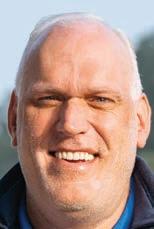
SALISBURY, Md. — Perdue Farms has announced that Kevin McAdams, COO and president, will transition to the role of chief executive officer, as part of a planned succession announced in April 2023.
McAdams brings 30 years of successful leadership in the food and beverage industry to the vertically integrated food and agriculture company and fourth-largest producer of chicken products in the United States.
Randy Day, who held the CEO position since April 2017, will be staying on as an advisor to Perdue through 2024.
“After 43 years with Perdue, and the last six as CEO, I’m looking forward to spending more time with my family. I appreciate the opportunity to serve this wonderful organization for my entire career,” Day said. “I know that I am leaving our company in good hands with Kevin, who possesses the values and leadership qualities to continue driving the business toward our vision to be the most trusted name in food and agricultural products.”
“As a 103-year-old, familyowned company, we have been very deliberate in our succession planning and believe Kevin is the right person to lead the next chapter of our company’s history,” said Perdue Farms Chairman Jim Perdue.
“I am personally grateful to Randy for his four decades of service to our business, his leadership, friendship, and contributions to our growth and success, and wish him the best in his retirement.”
“The opportunity to lead such a well-established, values-based company is the professional honor of a lifetime,” McAdams said. “I am grateful to the leadership team, including Randy and Jim, for their support and confidence, and the committed team of 21,000 associates producing high-quality, trusted food for families nationwide, our network of family farmers, and our customers and consumers.”
McAdams joined Perdue in July of 2022. He has a proven track record of achieving profitable, sustainable growth and driving operational excellence for top performing food and beverage companies, the company noted. Prior to Perdue Farms, McAdams was president, North America of Jack Links protein snacks, a privately held, family-owned company. His previous senior positions include president, Schwan’s Consumer Brands, and president and COO of Pabst Brewing Co. Earlier in his career, he held operating roles with Mizkan, Red Bull North America, The Coca-Cola Co., and PepsiCo/Frito-Lay.
McAdams graduated from Iowa State University with a bachelor of arts in political science.
Through the years, FLOCK has donated food and served themed meals to the campers, the company noted adding that it has participated in camp clean-ups and helped to raise funds during the Fall Bash Carnival. This year House of Raeford donated $2,000 to sponsor four evening meals, May through August. The MedCamps kitchen staff prepares the dinners and FLOCK volunteers serve the food to hungry kids.
At MedCamps, all campers have one thing in common — a similar mental or physical disability. Whether it be autism; seizure disorders; hearing, speech or vision impairments; cognitive disabilities; or some other challenge, there is a place for each child. On the campgrounds, counselors promote equality, and all differences are set aside so kids can just be kids. Children who would normally have limited opportunities for outdoor activity are able to kayak or fish on the lake, ride horses, experience the thrill of zip lining, shoot with a bow and arrow, and even show off their talents in dancing and karaoke.
“These are things most parents could not accommodate or afford
themselves,” said Thomas Edwards, who serves as chaplain for the employees of House of Raeford’s Arcadia complex. As an associate with Corporate Chaplains of America, Thomas has an even more intimate connection with MedCamps. His daughter Amelia who lives with a disability has been a camper there for several summers.
“Amelia is able to interact with children who are facing similar challenges and experience a special joy during the week,” Edwards said. “The heart and compassion of each staff member is so special and makes all the difference.”
Since its founding in 1987, MedCamps has never charged a fee for campers to attend their camps.
“This is made possible by the generous support and volunteerism of corporations like House of Raeford,” Caleb Seney, executive director of MedCamps of Louisiana, said. “We are grateful for the continued assistance. You make all the difference in the lives of children living with chronic illnesses and disabilities.”
This partnership has become a
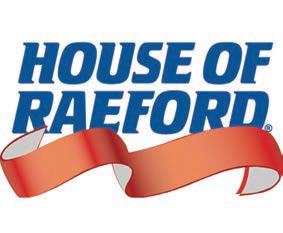
ROSE HILL, N.C. — For nearly 10 years, the House of Raeford Farms FLOCK team in Arcadia, La., has provided support for MedCamps of Louisiana. Through its series of summer programs, MedCamps creates a world of fun for kids with special needs. Their mission is to improve the health and wellness of people living with chronic illnesses and disabilities through unique recreational and educational camping experiences.
The WeighTech line of bench scales offers processors the best of both worlds: functionality and durability.

Our bench scales feature our industry leading MicroWeigh indicator, and is available in many sizes to fit your processing needs.
In today’s fast paced processing world, efficient, reliable and rugged scale systems and equipment are crucial.

passion for the FLOCK volunteers.
“You can see the joy in the kids, in their smiles, and how everyone treats each other the same with no judgement,” Mitzi Gaddy, quality assurance manager for House of Raeford’s Arcadia operation, said. “That is what makes this place such a worthwhile and rewarding place for us to volunteer.”
For more information about MedCamps of Louisiana, visit https:// medcamps.org.
Foundation has awarded scholarships to six outstanding students from a vast number of qualified applicants. The NPFDA Scholarship Foundation was established in 1979. Since that time, the Foundation has awarded almost $280,000.00 in scholarships to exceptional students. NPFDA scholarships are funded through donations and an annual silent auction, the association notes.
Eligible applicants were from NPFDA member companies or were children of an employee of a NPFDA member company who are enrolled full-time at a U.S. based college or university or a graduating high school senior pursuing a college degree in the fall. To apply each student had to complete an application, author an essay, and then submit these items along with their transcripts and a faculty recommendation.

ST. MARYS, Ga. — The National Protein and Food Distributors Association’s Scholarship

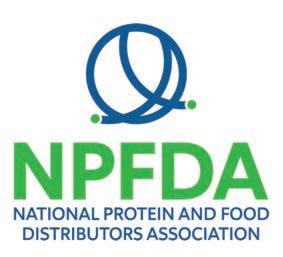
The NPFDA Scholarship Foundation’s Selection Committee reviewed each applicant’s submission. Each submission was evaluated by committee members based on the goals and aspirations essay, extracurricular activities, recommendation letter and GPA.
The NPFDA scholarship winners for 2023 are:
• Alexsa Medina of Miami Dade Honors College –Quirch Foods
• Austin Wallace of University of Georgia - WayneSanderson Farms
• Carmen Puentes of University of Tennessee – HPL
• Joey Xie of Vanderbilt University — AJC International
• Katherine Sierra of Auburn University - Auburn University
• Melissa Babinecz of University of Florida - Pilgrim’s
For more information, visit https://www.npfda.org/npfdascholarships or contact NPFDA at 770-535-9901 or info@npfda.org.
AURORA, Colo. — ProEgg, a farmer-owned cooperative of experienced egg producers with farms across the United States, recently named Jerry Wilkins as vice president of sales. Bringing more than 35 years’ experience working in the egg and retail industries, Wilkins will oversee all aspects of ProEgg’s sales and marketing, with a particular emphasis on driving broad-scale initiatives to showcase the cooperative’s diverse product offerings to customers.
“Jerry will be a critically important asset to ProEgg’s customer service, sales and marketing teams, and his leadership will be invaluable for the cooperative’s continued growth and expansion,” Ric Herrera, ProEgg CEO, said. “His deep cooperative experience, robust understanding of the egg supply chain, and rich retail and foodservice relationships will position him to immediately engage and add value to our members and customers.”
Wilkins most recently served as the sales director at NuCal Foods Inc., an agricultural cooperative in

the western United States, where he managed shell egg sales for major U.S. retailers. In this role, he also worked directly with procurement, logistics and farm operations departments to optimize processes and ensure steady supply chain fulfillment.
Wilkins has worked in various sales and retail roles throughout his career. He previously served as the sales and marketing director for Morning Fresh Farms, where he was responsible for all areas of sales and marketing. Additionally, he has strong restaurant and retail connections having previously worked with Sysco Foodservices of Denver and Albertsons.
Wilkins is a recognized leader within the egg industry and has served in numerous leadership roles, the cooperative added. He currently is president of the Colorado Egg Producers Association. Additionally, he’s previously served as chairman on the Consumer Marketing Committee and the Egg Packaging and Merchandising Task Force Committee for the American Egg Board, and as a member on the Public Relations Committee and Government Relations Task Force for United Egg Producers.
For more information about the cooperative, visit www.ProEgg. com.
TUCKER Ga. — The U.S. Poultry & Egg Association’s 2023 Women’s Leadership Conference will provide participants with strategies and techniques to develop leadership, communication skills and successful teams, while setting work/life boundaries. Attendees can anticipate a range of valuable programming focused on professional and personal growth.
This year’s conference will be held Aug. 17-18 at the Hilton Sandestin Beach Golf Resort & Spa in Destin, Fla.
“We know that women face some unique challenges at work,” said Ashley Ormsby, live operations manager at Pilgrim’s Athens, Ga. complex, and program plan-
ning committee chairperson. “Our planning committee understands those challenges and has crafted an agenda that is sure to leave attendees confident in their ability to rise to challenges, lead and develop high-functioning teams, communicate effectively and tackle everyday adversity.”
Session topics include Understanding the Relationship Between Actions and Titles … Titles Don’t Make You a Leader; Profiles of Women Leaders: Seasoned Professional’s Perspective and Young Professional’s Perspective; A Leadership Assessment: Improving Communication and Self Awareness; Practicing Mindfulness … Health and Wellbeing; Resolving Conflicts … Leading with Grace; and What Women Want at Work … Finding Your Voice in Leadership.
The 2023 Women’s Leadership Conference planning committee includes Emily Crawford, CobbVantress Inc; Valerie Dahlke, Wayne-Sanderson Farms; Gracie Heinen, Fieldale Farms Corporation; Eydie Kremer, Cooper Farms Inc; Dawn Lynch, House of Raeford Farms Inc.; Vicki Maldonado, Wayne-Sanderson Farms; Lisa Noffsinger, Mississippi State University; Ashley Ormsby, Pilgrim’s, and program planning committee chairperson; and Heidi Parnin, Culver Duck Farms Inc.
To register for the Women’s Leadership Conference and to view the full agenda, visit www. uspoultry.org.
WASHINGTON — The National 4-H Council has announced the departure of Jennifer Sirangelo, the current president and CEO. Sirangelo will depart on Aug. 18, 2023, when she will transition leadership of the organization to an experienced National 4-H Council executive and 4-H alumna, Jill Bramble.
After an 18-month, externally led executive succession process, the National 4-H Council Board of Trustees unanimously supported the appointment of Bramble, current executive vice president and chief growth officer, as its new president and CEO. She has more than 18 years of leadership experience at the organization and a deep commitment to National 4-H Council’s mission, values, and goals, the group noted.
“This is a bittersweet moment for me,” Sirangelo said. “It has truly been an honor to serve alongside National 4-H Council associates and thousands of cooperative Extension 4-H leaders and educators, preparing America’s young people to thrive through the life-changing impact of the 4-H program. I am so proud of all that the 4-H Movement has accomplished in creating opportunity for all young people. While it’s hard to step away from 4-H, this transition is easier knowing that Jill will be National 4-H Council’s next leader. Jill is the best person for this role. I have the utmost confidence in her and know the future is bright with her at the helm.”
Sirangelo has been an executive leader at National 4-H Council for 17 years, including nearly 10 years as president and CEO. She oversaw a period of transformational growth in council’s revenue, brand relevance, financial health, and diversity, equity and inclusion (DEI) impact. During her tenure, National 4-H Council’s revenue sustainably grew by 10X, and the organization launched a brand and purpose platform that prioritized diverse 4-H youth and alumni voices and attracted new multimillion dollar investments. A vocal and visible champion of DEI, she led the organization in raising millions in equity funding for 4-H programs at Historically Black Colleges and Universities (HBCUs) and guided the organization through the extreme business challenges of the pandemic to emerge in strong financial health.
“We are deeply grateful to Jennifer for her outstanding leadership and contributions to National 4-H Council and America’s young people. She will be missed,” said Krysta Harden, chair of National 4-H Council’s Board of Trustees. “We are fortunate to have a leader
of the caliber of Jill Bramble who is prepared to build on the organization’s growth and continue championing the importance of Cooperative Extension’s 4-H programs for the nation’s youth.”
Bramble brings a wealth of experience and a deep commitment to the organization’s mission, the council noted, adding that, she is a fourth generation 4-H alumna who rose through the ranks of National 4-H Council starting as a grant writer to now take on the top leadership position. Throughout her time at National 4-H Council, Bramble has consistently demonstrated her dedication to empowering young people, fostering innovation, and strengthening partnerships. Her strategic insights, collaborative approach, and passion for positive youth development make her the ideal candidate to lead National 4-H Council into its next phase of growth and impact.
“I am honored to step into the role of National 4-H Council’s President and CEO,” Bramble said. “I have witnessed firsthand the transformative power of 4-H programs. As the leader of National 4-H Council, I will spend
every single day ensuring all kids have access to the powerful, lifechanging outcomes that I experienced in my own childhood. I have endless faith in the leadership of the next generation if we give them the tools they need to be successful. My role will be to empower Cooperative Extension 4-H educators to help America’s youth reach their full potential.”
MILFORD, Ind. — Paula Haines has been named human resources manager for Chore-Time, Chore-Time Europe, and CTB Inc., according to Mike Kissane, executive vice president & chief administrative officer for CTB Inc.
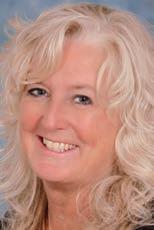

In her new position, Haines will
Whether it be windrowing to produce a pathogen & insect reduced bedding to grow a top performing flock of BIRDS, or pulverizing litter to make a soft fluffy bedding without the need to decake or add shavings, we have the equipment to fit your operation. We have various models, sizes and options to fit your needs. Keep in mind, our goal is customer service, quality equipment and of course the BIRDS.

be responsible for talent management and employee relations, as well as the administration of the organization’s human resource policies, practices, and programs. She will lead human resources management for Chore-Time employees at both the company’s Milford, Ind., and Decatur, Ala., facilities and CTB’s corporate employees in Milford, Ind. She will also provide human resources support to Chore-Time Europe employees at the company’s facilities in The Netherlands and Poland.
A CTB employee since 1985, Haines has held positions of benefits coordinator, administrative assistant, human resources secretary and Chore-Time manufacturing clerk. She most recently held the position of human resources manager where she supported the Roxell USA, Cabinplant USA and PigTek’s USA and Vietnam business units. During her time at CTB, she has participated in numerous human resource, legal and safety training programs. She is a member of the Society for Human Resources Management.
Haines is a native and long-time resident of Warsaw, Ind., but currently resides in Milford, Ind.
Matt Klassen currently holds the position of Aviagen North America account manager for Canada, succeeding Scott Gillingham, who played a pivotal role in spearheading the Canadian Graduate Scholarship program.
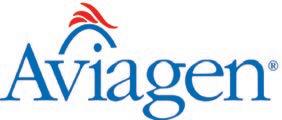
HUNTSVILLE, Ala. — Demonstrating its commitment to promoting the future of the poultry industry, Aviagen® North America recently awarded five scholarships totaling $25,000 to graduate students across Canada.

Recipients were selected by an Aviagen scholarship committee based on academic merit and professor recommendations. Each student, accepted to or currently enrolled in a graduate degree program in animal or veterinary science with a focus on poultry, was awarded a $5,000 scholarship to help alleviate tuition and schoolrelated expenses.

“The future sustainability of our industry depends on the innovation and ingenuity of talented young minds, driven by a passion for animal welfare and feeding the world with a sustainable source of protein,” Klassen said. “It is up to us to support and encourage our future poultry industry colleagues on their journey toward building a successful poultry career.”
“These awards join an array of internships, scholarships, and other programs designed to help educate and inspire our future generation,” Klassen added. “By supporting the growth and development of these exceptional graduate students, we show our commitment to the advancement and sustainability of the poultry sector.”
For more information, visit www.aviagen.com.
EDEN PRAIRIE, Minn. — Zinpro Corp. has announced that the company has awarded Isabella von Seggern with the 2023 Zinpro Undergraduate Poultry Science Scholarship Award.

“We are proud to support talented agricultural science students like Isabella as they complete their studies and begin their careers,” said LaToya Burrell, Zinpro general counsel and executive director of Anderson Foundation. “At Zinpro, we believe that high-performing teams are made up of diverse perspectives and experiences, and we support young leaders who can bring these ideals to life throughout their careers.”
The Zinpro Undergraduate

Our new Fast Track Wall Vent (Patent Pending) takes the concept of a wall vent to the next level. It comes fully assembled right out of the box, goes up very quickly and is very competitively priced.
Wall Vent Features
Δ Available either insulated or uninsulated
Δ Superior performance
Δ Integrated track cord tensioner/locator

Δ Integrated winter latching system
Δ Cord guide included along with installation jig to speed up installation
Δ Available in 8”,10’, 12”, 14” heights with custom lengths available
Δ Perfect for retrofit applications-the wall vent is surface mounted to compensate for framing irregularities and can be ordered to fit virtually any opening

Δ Orders come bulk-packed in palletized gaylords to make it easier and faster on installation crews

Poultry Science Scholarship was established to promote diversity in the poultry science industry, and is awarded to a student belonging to gender, racial or ethnic groups that have been historically underrepresented in the United States. Successful applicants have shown exceptional scholastic achievement and service as well as an interest in continuing to learn and promote the role of the poultry industry in feeding the world’s growing population.
While she is currently studying animal science at Iowa State University, von Seggern’s interest in poultry started years earlier as she grew up showing ornamental chickens in 4-H. Once in college, she rediscovered her passion for poultry animals and combined that with her desire help feed the world in a sustainable way and to educate consumers on how animal agriculture works. After von Seggern completes her bachelor’s degree, she plans to pursue either veterinary or graduate school before studying poultry behavior and neurological functions.
Von Seggern’s contributions to agriculture extend beyond her deep
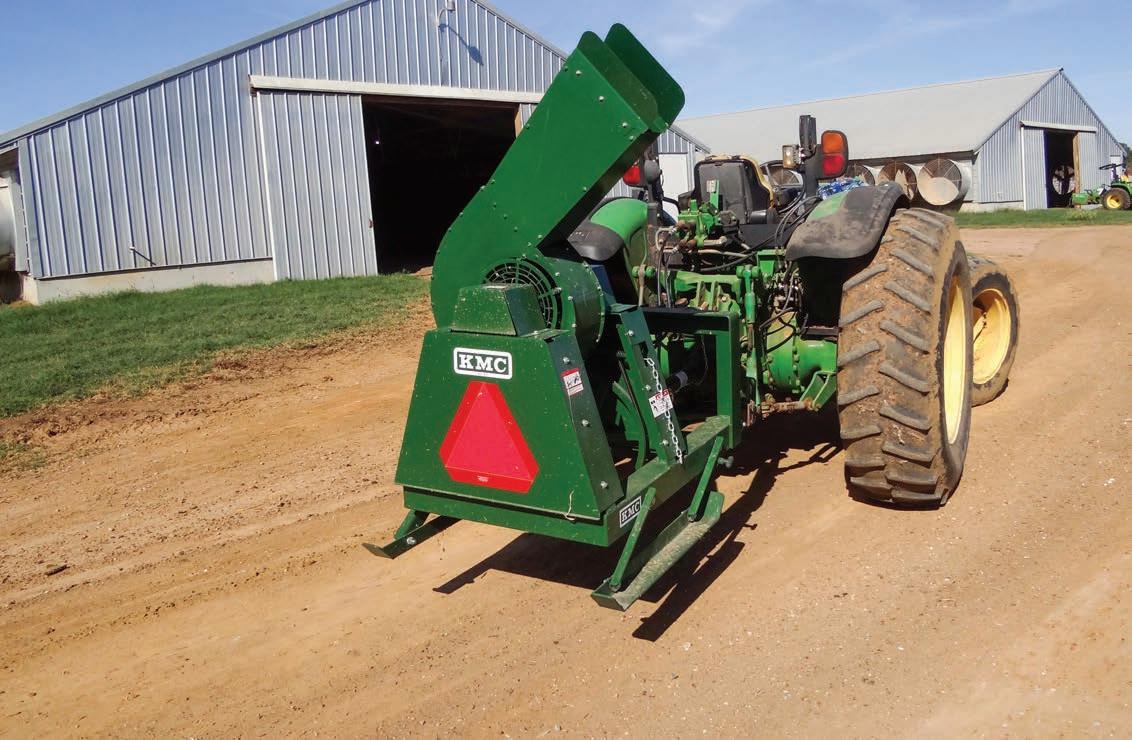
knowledge of poultry, as she also works to promote the importance of diversity in the industry.
“Diversity challenges people to rethink their beliefs and question the world around them. To preserve diversity is to promote development,” von Seggern said. “Exchanging diverse backgrounds and experiences allows individuals and professions to flourish.”
Cobb Germany celebrates 25th anniversary

MUNICH, Germany — The history of Cobb Germany is now a quarter of a century old. In 1998, the Wimex Group entered into an agreement with the Cobb Breeding Co., securing the exclusive right to produce and distribute Cobb parent stock. The company Cobb Germany was founded to distribute the Cobb500 parent stock in Germany, Austria and Switzerland.
Since then, the company has grown considerably and now employs 170 people. Cobb Germany is active in more than 20 countries, primarily in Central and Eastern
Europe.
Guests from all over the world came to Munich for the celebration, the company announced. Among those present were Rafa Gil, general manager Cobb Spain; James Truscott, director Cobb Germany; Mathew Wilson, sales and marketing director Cobb Europe; with their European colleagues, as well as the sales, technical and production teams from Cobb Germany.

“We are delighted that so many companions and partners accepted our invitation to the celebration,” said Leopold Graf von Drechsel, managing director of the Wimex
Group. “We can be very proud of what we have achieved in the past 25 years — I would like to take this opportunity to express my special thanks to James Truscott. The successful development of Cobb Germany is closely linked to his passion and commitment. We are not yet at the end of the road and are looking ahead. We have a lot planned for the next few years and look forward to continuing Cobb Germany’s journey together with supporters and partners.:”
The company also expressed its thanks to its employees, adding

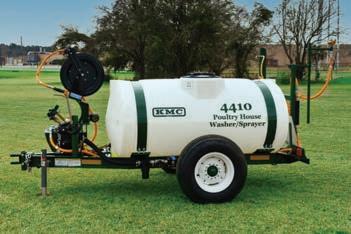
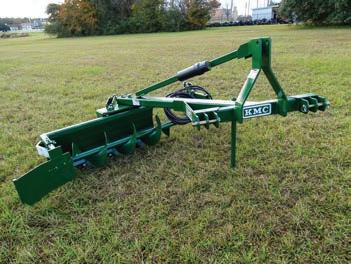
(Continued on next page)

that, Cobb Germany can rely on committed employees. Not only did the company celebrate its anniversary in Munich, there were also a number of anniversaries among the staff. Some employees have been on board since day one, others joined a little later and can already look back on 15 years of service at Cobb Germany.
“We are grateful for every single employee at Cobb Germany,” von Drechsel said. “The success story of the company is closely linked to the commitment of the workforce.”
Zaxby’s petitions Unicode to add sauce emoji on ‘World Emoji Day’
ATHENS, Ga. — Zaxby’s® is using World Emoji Day (which was on July 17) as a platform to launch a change.org petition to create the world’s first sauce emoji, the “Saucemoji.” The brand invites all sauce enthusiasts to sign the petition via saucemoji.com, to bring the first-ever emoji for sauce to the Unicode keyboard.

“In honor of World Emoji Day, Zaxby’s is starting a movement to elevate sauce to emoji status,” said Patrick Schwing, Zaxby’s chief marketing and strategy officer. “We’re asking all brand fans and sauce aficionados to join us in calling for the creation of the first-ever sauce emoji.”
The brand, known for its Zax
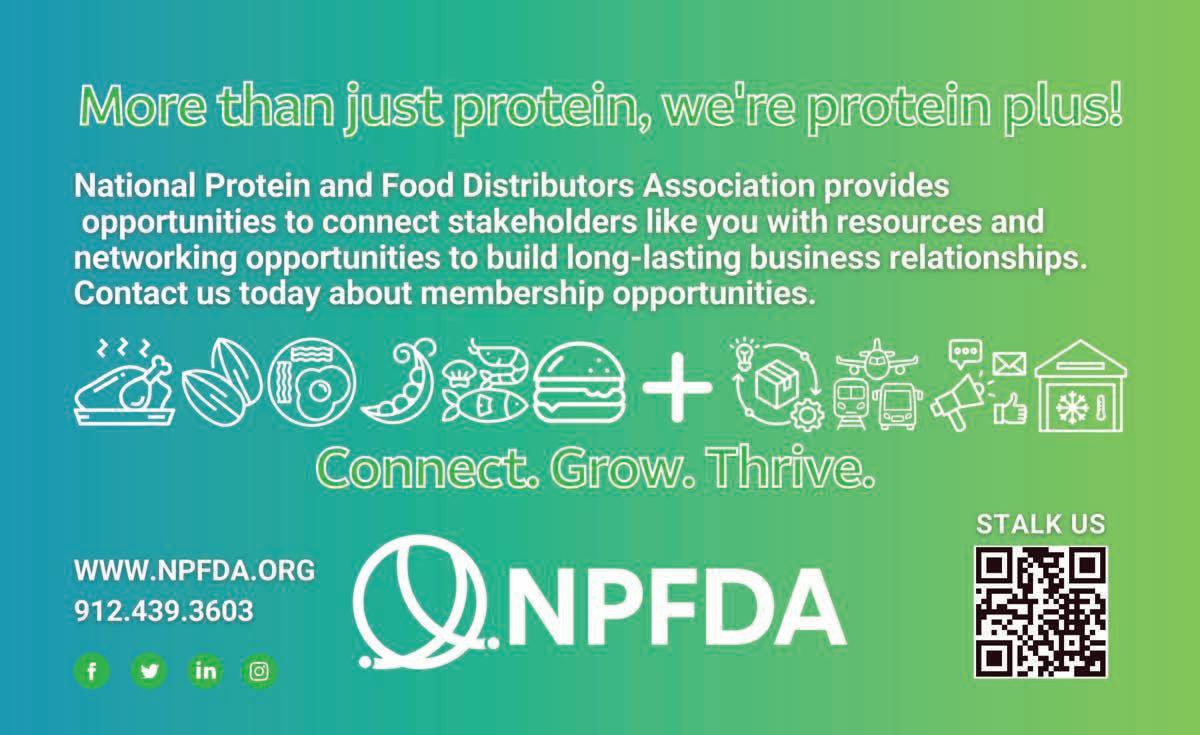
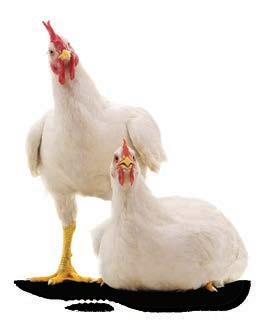



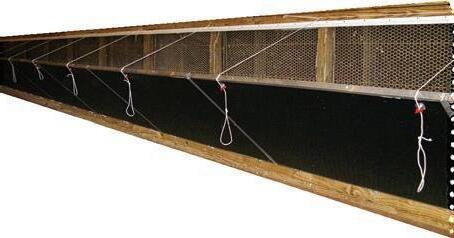



Sauce®, wants to rally sauce enthusiasts around the world behind its cause by encouraging people to sign and share the petition on change.org. Zaxby’s has been slowly building the case for a Saucemoji on its social media channels calling out the fact that no appropriate emoji yet exists to display sauce in a simple and accu-
rate way, even though many emojis exist for less “useful” things.
Emojis have been around since the early days of the internet. As verbal communication has given way to digital messaging via smartphones and other devices, emojis have become increasingly popular visual cues to convey sentiment and create context.
In homage to its famous sauces and fan-favorite staple Zax Sauce, Zaxby’s is looking for a way to help people who are in desperate need of an emoji to properly express their sauciness, the company said. The brand has already proposed its desired design of the Saucemoji to sauce up keyboards worldwide. Zaxby’s encourages fellow brands with an interest in a sauce emoji to join the petition and call on their followers and fans to sign it in solidarity with sauce fans everywhere.
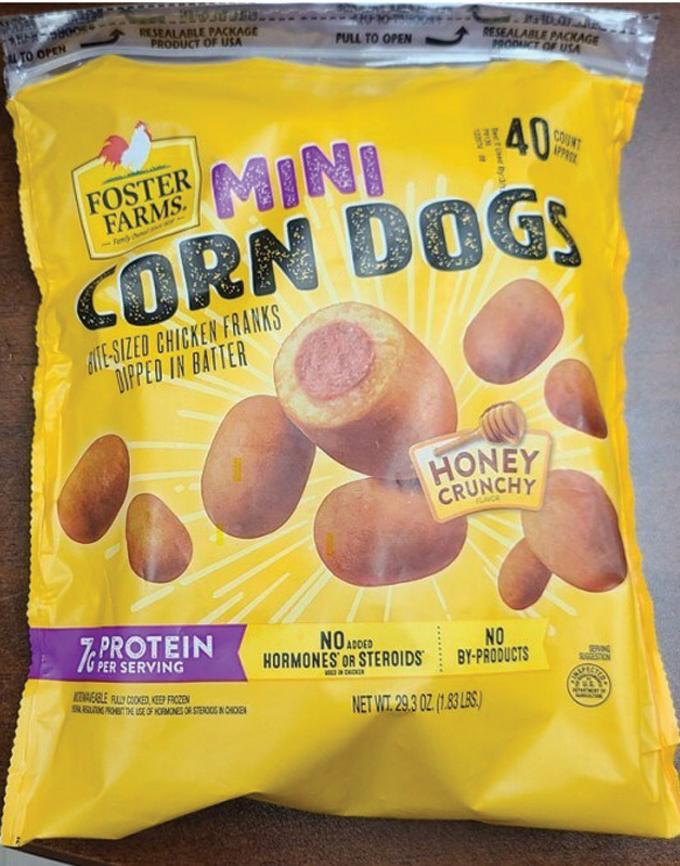
LIVINGSTON, Calif. — Foster Farms has announced that it continues to be committed to offering the highest level of quality foods and is informing consumers that it is working in cooperation with the USDA on a voluntary product recall.

House of Raeford Farms is initiating a voluntary Class I recall of 76,961 pounds of Foster Farms Mini Corn Dogs Bite-Sized Chicken Franks Dipped in Bat -
ter Honey Crunchy Flavor sold in 1.83-pound resealable bags, which House of Raeford Farms produced and packed for Foster Farms.
The recalled product is identified by lot codes 123114 or 223114, plant number “P-9136” and an April 23, 2024 “Best If Used By” date printed on the package.

The recall is being conducted nationwide and is related to an odor, off appearance and unpleasant taste associated with the product. There have been no confirmed reports of adverse reactions due to consumption of these products, but the risk of adverse reaction remains.
Consumers should not consume the product and are advised to return it to the store where the items were purchased for a full refund. All other Foster Farms fresh, frozen, and prepared products are safe and wholesome, the company added.
Consumers with safety questions can contact the USDA Meat and Poultry Hotline at 888-6746854, or via email at MPHotline@usda.gov.
SPRINGDALE, Ark. — Tyson Foods recently celebrated its first year of providing tuition-free education for all U.S. team members through its Upward Academy Online program in partnership with career opportunity company Guild.
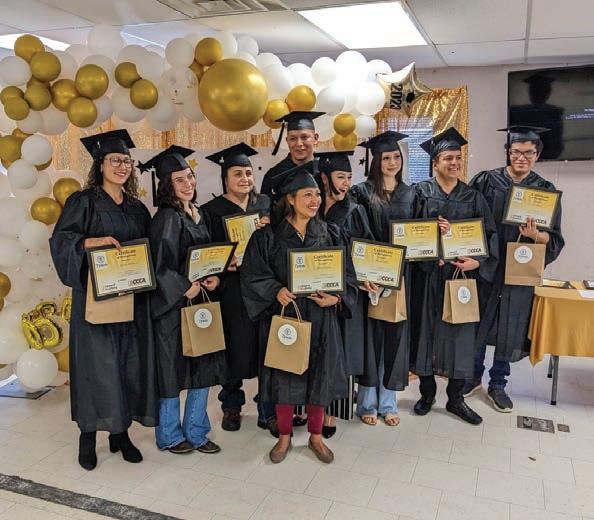
As part of the one-year milestone, Tyson Foods is also announcing a new partnership with the University of Arkansas, the flagship postsecondary school in the company’s home state, to offer six new programs that include degrees and certificates in general business, supply chain management and human resources management, in addition to other professional certifications.
“The University of Arkansas is proud to partner with Tyson Foods and Guild to provide transformative, career-enhancing educational opportunities to Tyson team members in Arkansas and across the nation,” said Chancellor Charles Robinson, University of Arkansas. “We love to see students of all educational paths shine, and this is just one way we can empower working professionals to reach their career goals.”
Since the expansion of Upward Academy one year ago to include access to Guild’s online Career Opportunity Platform, more than 2,800 of the company’s employees are enrolled in a variety of programs that are provided by more than 35 accredited universities, colleges and professional training providers.
“We’re investing in the future of our team members and providing the tools and resources they need to be successful, both personally and professionally,” Donnie King, president and CEO, Tyson Foods, said. “Whether they’re learning a new language, earning a college degree or gaining skills to help build their career, this program is helping our team members thrive.”
More than 13,000 Tyson Foods team members have engaged with the program and become Guild members since the program launched in 2022. By becoming Guild members, they are able to connect with a Guild coach to dis-
cuss their professional goals, access career resources, and explore programs connected to in-demand roles within the company.

Sixty-seven new learning and education programs including agriculture and sustainability, cybersecurity and data analytics, have been added this year. Bachelor degrees in nursing, Spanish and French language programs and professional certificates in automation, nanotechnology and management leadership are also available.
Personal and professional growth for its team members has remained a top priority for the company since the inception of Upward Academy in 2016, Tyson Foods said. Originally designed as an onsite adult education program, Tyson Foods recognized the growing need for expanded education offerings to improve career mobility opportunities. By partnering with Guild, the company is able to give employees a convenient and accessible way to achieve their career goals.
“Upward Academy Online is a great program because Tyson Foods pays for it in its entirety, and classes are online, making it more accessible for full-time team members,” said Petrit Kwa, electrical technician at the Tyson Foods Waterloo, Iowa, facility. “You can stay home and complete coursework through your phone…even though you have a family, you’re still able to do it. This is the type of opportunity I’ve been waiting for ever since I came to the U.S.”
“Guild is honored to work alongside Tyson Foods as they invest in learning and career mobility opportunities for their team members,” said Rachel Romer, CEO, Guild. “As we enter the second year of our partnership, we look forward to seeing the continued advancement of team members as they progress on their learning and career journeys.”
To learn more about Upward Academy Online and the benefits available to Tyson Foods team members, visit https://tyson.guildeducation.com/partner.
DECATUR, Ala. — The American Cancer Society of Decatur, Ala., recently hosted its annual Relay for Life event at Old State Bank in Founder’s Park, celebrating local cancer survivors and championing long-time supporters like WayneSanderson Farms, one of the top two corporate fundraisers for Decatur’s Relay for Life event. The company’s effort helped propel the region to be named the number one ACS fundraising site in the country.
“This is our big celebration of the year,” Cherry Hammonds, executive director for ACS of Decatur, said. “Over the year, our supporters hold a number of different fundraising events, like the annual Relay for Life golf tournament sponsored by Wayne-Sanderson Farms, and then we get together as a community to recognize those efforts. This year, the annual event is themed ‘Cirque De Relay’ to celebrate and champion our cause.”
Hammonds went on to describe the kind of support ACS of Decatur
is able to offer cancer victims and their families thanks to the benevolence of supporters.
“We’re so grateful — it’s just a godsend,” Hammonds said. “Because of corporate neighbors like Wayne-Sanderson Farms, we’re able to help Decatur and Morgan County cancer victims, and their families, find the assistance they need and access to the treatment they require. These dollars go to things like patient and caregiver lodging at Hope Lodge, transportation grants to local cancer centers for patient
gas and transportation, and to support our online portal, helping local patients access multilingual clinical and social support resources in the local area.”
This year’s Cirque De Relay event on May 5 began with the survivor dinner followed by the traditional survivor walk and a celebration party including performances by American Idol contestant and local celebrity, Brandon Elder, and an array of games, entertainers and local food vendors.
Wayne-Sanderson Farms’ Deca-
tur, Ala., prepared foods complex has traditionally been one of the charity’s largest local supporters, sponsoring the Decatur Relay for Life annual corporate golf tournament and other events raising nearly $1.5 million over the past decade.

This year’s golf tournament held at Burningtree Country Club followed by a banquet at Ingalls Harbor raised more than $105,000 for cancer research to date. Beckie Patrick, senior administrative assistant for Wayne-Sanderson Farms’ Decatur, and Relay for Life team leader, has spearheaded company support for the fundraiser for more than a dozen years.
“We’re so happy to participate — it’s always a great event,” Patrick said. “Many of us are cancer survivors here at the Wayne-Sanderson Farms Decatur facility and most of us have family members or loved ones who are affected, so we’re very excited to be a part of this effort.”
The local team’s relentless determination has resulted in WayneSanderson Farms being named to the ACS nationwide top ten roster for more than 10 consecutive years and receiving the “Spirit of Relay” award in 2020, the company also noted.
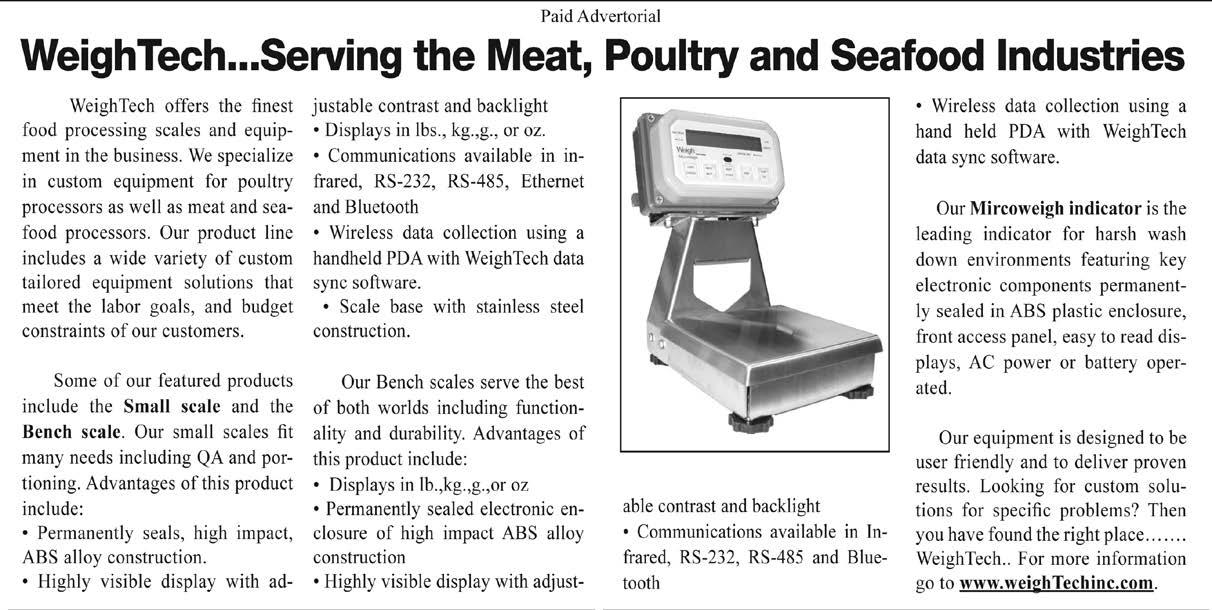
Hormel Foods brought a full restaurant experience to life at the recent National Restaurant Association show in Chicago, demonstrating the potential of the company’s foodservice products, both in terms of easy preparation in the kitchen and great taste on the plate.
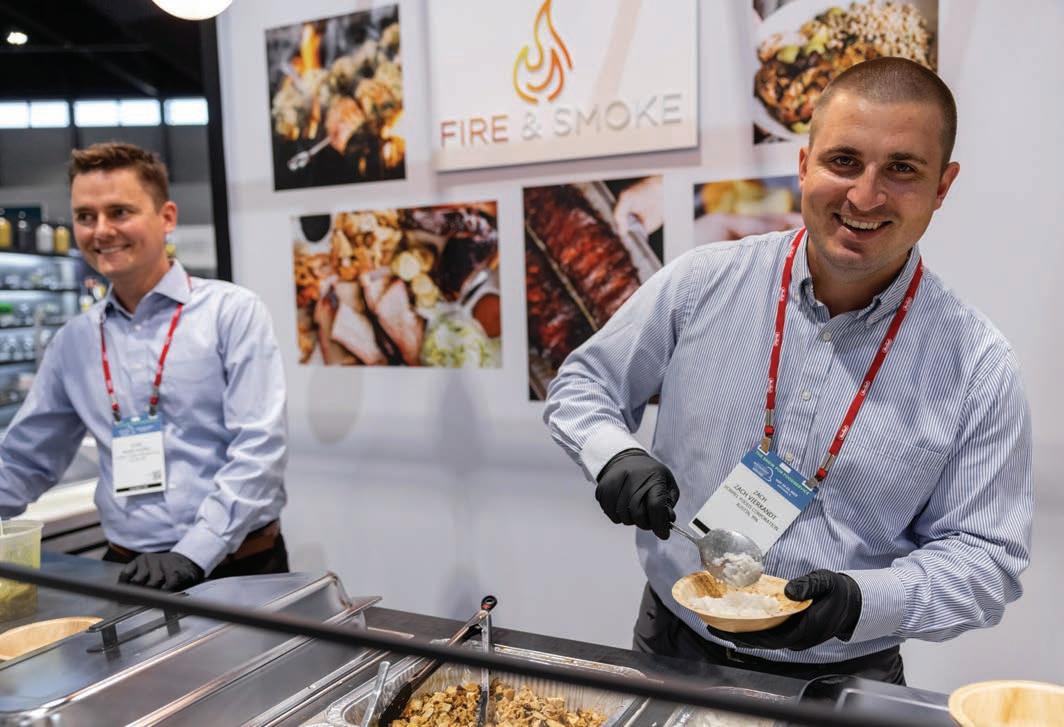
AUSTIN, Minn. — Ask foodservice operators what keeps them up at night, and labor challenges will likely be at or near the top of the list. With the industry’s workforce participation rate still well below prepandemic levels, most foodservice establishments around the United States must continue to do more with less.
Hormel Foods Corp. has been a trusted partner of foodservice operators seeking innovative products that relieve pressure on understaffed kitchens, the company noted. Hormel recently demonstrated many of these product solutions it the National Restaurant Association show in Chicago, offering food-forward solutions to counter modern industry challenges.
“The industry members continue to seek out items that help them with

labor and safety,” said Blake Flores, foodservice innovation team lead, Hormel Foods. “These have been trends in the industry for a while, but they’re as relevant as ever now.”
At the recent National Restaurant Association show, Hormel displayed its one-of-a-kind 5,000-square-foot exhibit, which was built around a professional kitchen run by the Hormel Foods Culinary Collective — the company’s team of expert chefs — and a full-service restaurant that seated more than 50 people. Restaurant guests were treated to a custom menu of options, all of which featured at least one foodservice product from Hormel Foods, including:
• Carolina Gold Rice Cakes: Crispy Carolina gold rice cakes tipped with homemade pimento cheese, Austin Blues® pit-smoked
pulled pork and homemade chow chow.
• Behl Puri: Indian street food made with three homemade chutneys, tomato, onion and fresh herbs, topped with a choice of Jennie-O® Perfect L’attitudes shredded turkey or Fontanini® pot roast.
• Chicken Khao Soi: Hormel Fire Braised chicken thigh, crisp veggies, rice noodles, fried shallots, pickled onions and fresh herbs, served tableside with coconut curry broth.
• Feijoada: Traditional Brazilian black bean stew made with Masterpieces® chorizo, Hormel Bacon1 bacon and Fontanini® Brazilian sausage, served with coconut rice and farofa.
• Mole Rojo Chicken Bowl: Hormel Fire Braised chicken thigh tossed with Doña Maria® rojo sauce, served over black beans, roasted corn, tomatillo pico de gallo and WHOLLY® avocado handscooped avocado.
“We had A-plus food at the show. Our people took great pride in delivering a top-notch experience for our guests,” Flores said. “We wanted to bring the full restaurant experience to life and demonstrate the incredible potential of our foodservice products, both in terms of easy preparation in the kitchen and great taste on the plate. We are always striving to make the lives of our foodservice clients easier and safer.”
For more information, visit www. hormelfoodservice.com.


JUL 31 – AUG 2 — NCC CHICKEN MARKETING SUMMIT, Hotel Effie Sandestin, Miramar Beach, Fla. Contact: National Chicken Council, 1152 15th Street NW, Suite 430, Washington, D.C. 20005; Ph: 202296-2622; pburko@chickenusa.org; www.nationalchickencouncil.org.
AUG 1 — AFIA/KSU-500, Fundamentals of Feed Manufacturing. Online course runs through Sept. 5, 2023. Contact: American Feed Industry Association, 2101 Wilson Blvd., Suite 810, Arlington, Va. 22201. Ph: 703-524-0810; www.afia.org.
AUG 14-16 — NATIONAL SAFETY CONFERENCE FOR THE POULTRY INDUSTRY, Hilton Sandestin Beach Golf Resort & Spa, Destin, Fla.
Sponsored by the Georgia Tech Research Institute, Georgia Poultry Federation, National Chicken Council, National Turkey Federation and USPOULTRY. Contact: USPOULTRY, 1530 Cooledge Road, Tucker, Ga. 30084; Ph: 770-493-9401; seminar@ uspoultry.org; www.uspoultry.org.
AUG 17-18 — WOMEN’S LEADERSHIP CONFERENCE, Hilton Sandestin Beach Golf Resort & Spa, Destin, Fla. Contact: USPOULTRY, 1530
Cooledge Road, Tucker, Ga. 30084; Ph: 770-493-9401; seminar@ uspoultry.org; www.uspoultry.org.
AUG 17-18 — MEAT INDUSTRY FOOD SAFETY CONFERENCE, Grand Hyatt, Denver, Colo. Contact: North American Meat Institute, 1150 Connecticut Ave. NW, Washington, D.C. 20036; Ph: 202587-4200; www.meatinstitute.org.
AUG 18-19 — TPA ANNUAL MEETING & SUMMER GETAWAY, Gaylord Opryland Resort, Nashville, Tenn. Contact: Tennessee Poultry Association, P.O. Box 1525, 1404 N. Main St., Shelbyville, Tenn. 371621525; Ph: 931-225-1123; info@ tnpoultry.org; www.tnpoultry.org.
AUG 29-31 — 2023 NUTRITION CONFERENCE, Robinson Center & DoubleTree Hotel, Little Rock, Ark. Contact: The Poultry Federation, 321 South Victory Street, Little Rock, Ark. 72201; Ph: 501-3758131; info@thepoultryfederation. com; www.thepoultryfederation.com.
SEP 4-8 — WVPA WORLD CONGRESS, Verona, Italy. Contact: World Veterinary Poultry Association; www.wvpa.net.
SEP 12-14 — 2023 LIQUID FEED SYMPOSIUM, Hyatt Regency, Louisville, Ky. Contact: American Feed
Industry Association, 2101 Wilson Blvd., Suite 810, Arlington, Va. 22201. Ph: 703-524-0810; www.afia.org.
SEP 14-15 — CPF ANNUAL CONFERENCE, Monterey Plaza Hotel & Spa, Monterey, Calif. Contact: California Poultry Federation, 4640 Spyres Way, Suite 4, Modesto, Calif. 95356; Ph: 209-576-6366; https://cpif.org.
SEP 17-20 — NPFDA FALL MEETING, Universal Orlando Resort, Orlando, Fla. Contact: National Protein & Food Distributors Association, 2014 Osborne Road, Saint Marys, Ga. 31558; Ph: 912-439-3603; www.npfda.org.
SEP 18-20 — NTF LEADERSHIP CONFERENCE, AC Hotel by Marriott, Capitol Hill, Navy Yard, Washington, D.C. Contact: National Turkey Federation, 1225 New York Ave. NW, Suite 400, Washington, D.C. 20005; Ph: 202-898-0100; info@ turkeyfed.org; www.eatturkey.com.
SEP 20-21 — LIVE PRODUCTION, WELFARE and BIOSECURITY


SEMINAR, DoubleTree by Hilton Nashville Downtown, Nashville, Tenn. Contact: USPOULTRY, 1530 Cooledge Road, Tucker, Ga. 30084; Ph: 770-493-9401; seminar@ uspoultry.org; www.uspoultry.org.
SEP 25-27 — 58TH NATIONAL MEETING on POULTRY HEALTH, PROCESSING
and LIVE PRODUCTION, Ocean City. Md. Contact: Delmarva Chicken Association, 16686 County Seat Hwy. Georgetown, Del. 19947; Ph: 302856-9037; www.dcachicken.com.
SEP 26-28 — SHELL EGG ACADEMY, Purdue University, West Lafayette, Ind. Contact: Empowered Events, P.O. Box 265, Buffalo, Minn. 55313; Ph: 765494-4845; info@shelleggacademy. org; https://shelleggacademy.org/.
SEP 28-29 — ENVIRONMENTAL MANAGEMENT SEMINAR, Hilton Sandestin Beach Golf Resort & Spa, Destin, Fla. Contact: USPOULTRY, 1530 Cooledge Road, Tucker, Ga. 30084; Ph: 770-493-9401; seminar@ uspoultry.org; www.uspoultry.org.
OCT 2 — NCC ANNUAL CONFERENCE, Washington, D.C. Contact: National Chicken Council, 1152 15th Street NW, Suite 430, Washington, D.C. 20005; Ph: 202-296-2622; pburko@chickenusa.org; www. nationalchickencouncil.org.
OCT 3 — AFIA/KSU-500, Fundamentals of Feed Manufacturing. Online course runs through Nov. 7, 2023. Contact: American Feed Industry Association, 2101 Wilson Blvd., Suite 810, Arlington, Va. 22201. Ph: 703-524-0810; www.afia.org.
WEST LAFAYETTE, Ind. — The Purdue University/CME Group Ag Economy Barometer index improved in June, rising 17 points to a reading of 121. The upswing in sentiment was driven by producers’ more optimistic view of the future; however, their perception of current conditions remained unchanged from May.
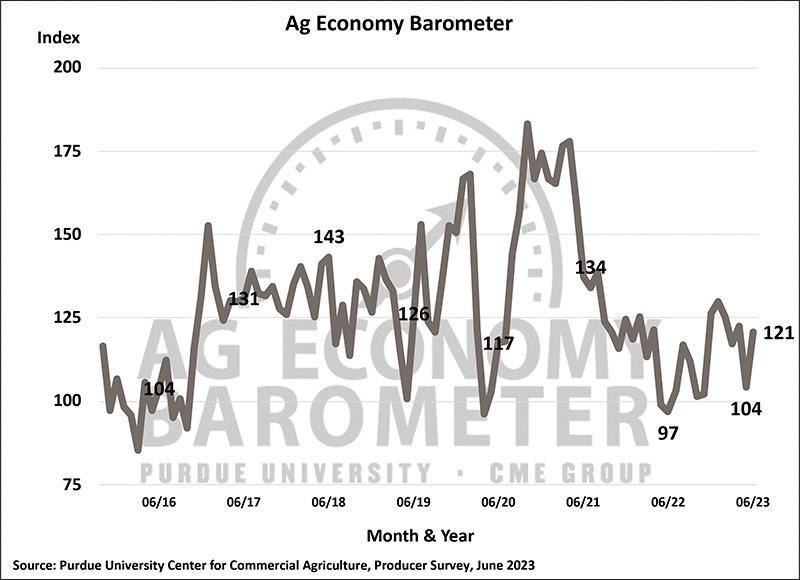
“Optimism about U.S. agriculture’s future and a more sanguine interest rate outlook help explain producers’ more positive view of the future expressed in June’s survey; however current conditions in the farming economy continue to present a challenge for some producers,” said James Mintert, the barometer’s principal investigator and director of Purdue University’s Center for Commercial Agriculture. “This month four out of 10 producers stated that their financial situation has deteriorated compared to a year ago.”
To better understand the large month-tomonth swing in producers’ expectations for the future, responses between the May and June surveys were compared. In June, 20 percent of respondents said they expected their financial condition to improve over the next year, compared to just 13 percent who said that in May. Meanwhile, only 32 percent expect their farm’s financial situation to decline over the upcoming year, compared to 44 percent who responded that way in May.
Producers’ improved perspective on the future was not focused solely on their own farms but extended to all of U.S. agriculture. The percentage of producers expecting good times for U.S. agriculture in the next five years rose 8 points to 33 percent, while the percentage of producers expecting bad times fell 3 points to 41 percent.
The Farm Financial Performance Index also rose this month, up 10 points from May, and was likely a result of a late-May to early-June rally in harvest-time prices for corn and soybeans, as well as optimism toward positive returns for cattle producers.
In June, 50 percent of respondents said they expect “good times” for livestock producers in the next five years, up from 37 percent in May. Optimism about positive returns for cattle producers, especially cow-calf operations, was likely a key factor behind the positive livestock outlook.
The Farm Capital Investment Index rose five points in June to a reading of 42; however, nearly 75 percent of respondents still feel now is a bad time to make large investments in their
farming operation. Respondents in June cited rising interest rates (35 percent of respondents) and increasing prices for equipment and new construction (37 percent of respondents) as key reasons for viewing now as a bad time for investments.
Producers were more optimistic about farmland values in June as both the short and longrun farmland value indices rose. The shortterm index, which asks producers about their outlook over the next 12 months, jumped 16 points to a reading of 126, its highest reading since last November. Meanwhile, the longterm index, which asks producers to look ahead five years, rose a more modest 6 points to a reading of 151, pushing that index up to its highest level since February 2022.
Additionally, 43 percent of producers in the June survey think interest rates have peaked, and nearly a quarter of survey respondents expect to see lower interest rates within the next year.
This month’s survey also included a question targeted toward corn and soybean producers regarding their expectations for farmland cash rental rates in 2024. Twenty-five percent of the corn/soybean producers in this month’s survey said they expect 2024 cash rental rates in their area to rise above 2023’s rates. Of those respondents who said they expect rental rates to rise, nearly one-third (32 percent) said they
expect 2024 rental rates to increase up to 5 percent, while nearly half (49 percent) look for rates to rise from 5 percent to 10 percent, when compared to 2023.
This month’s survey included questions to learn more about producers’ thoughts on the passage of a new farm bill. Among corn and soybean producers, the Crop Insurance title and the Commodity title remain the two most important farm bill components. When asked about expectations for PLC reference prices for corn and soybeans, half of corn and soybean producers said they expect Congress to raise prices for both.
In response to the recent Supreme Court ruling, which upheld California’s Proposition 12 mandating housing standards for hogs processed into pork that will be sold in that state, all survey respondents were asked about the likelihood Congress would overturn the proposition as part of a new farm bill.
Producers were split in their response to this question, with 36 percent stating it’s either somewhat or very unlikely that Congress will try to overturn the proposition, and 25 percent stating it is at least somewhat likely Congress will take on Proposition 12 in new farm bill legislation.
For more information from the Ag Economy Barometer, visit https://purdue.ag/agbarometer.


ALEXANDRIA, Minn. — Each year, during the Minnesota Turkey Growers Association’s Annual Summit, industry partners and turkey growers are recognized for their service to Minnesota’s turkey industry. MTGA presents three awards, the President’s Award, Allied Lifetime Achievement Award, and the organization’s highest award, the Ranelius Award, to deserving individuals during the summit’s award ceremony.
The President’s Award is presented to a worthy individual by the current MTGA President, chosen specifically for his or her dedication and commitment to the goals of the organization. This year, two deserving candidates were named, Paul Kvistad and Erica Sawatzke.

Kvistad is an integral part of Minnesota’s turkey industry, the association noted. He served on the MTGA board, providing steady leadership through times of change. He has also worked to bring new growers into Minnesota’s turkey industry by instilling a passion for turkey in his son and others.
Sawatzke has a long history with MTGA, serving as a former staff member and now chairing the Minnesota Board of Animal Health. As a turkey grower herself, Erica has ensured turkey is recognized by the board.
“Erika has unapologetically represented the turkey industry as the Chair of the Minnesota Board of Animal Health,” said Jes Westbrock, president of the MTGA. “Her presence and
leadership have been instrumental in ensuring the people and programs necessary to respond to the 2022 HPAI outbreak successfully were in place and functioning.”
The Allied Lifetime Achievement award is giving in recognition of exemplary service to Minnesota’s turkey industry. This year’s recipient, Marlin Beliveau, has built a lifelong career serving turkey farmers.
While working for PALS: Poultry and Livestock Supplies, Beliveau was a reliable and trustworthy source of knowledge and support, MTGA said. It was clear to the farmers he served that he had their best interests in mind, holding the farmers’ interests above the company’s. He has often been described as a public servant.
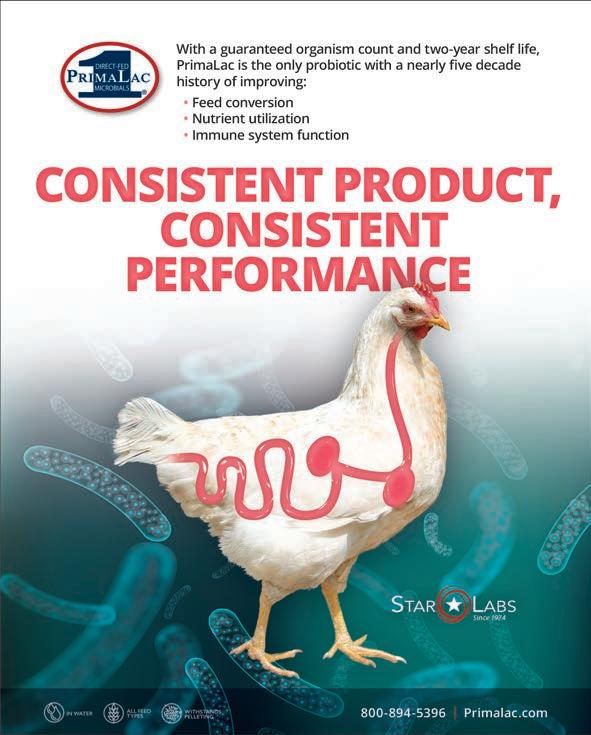
“No offense to those who’ve replaced him after retirement –they just don’t make them like that anymore,” said Pete Klaphake, president of the Minnesota Turkey Research and Promotion Council. “A friend, a family man, and honest businessman - Marlin Beliveau of PALS is deserving of being honored with this year’s MTGA Allied
Lifetime Achievement Award.”
The final award given by MTGA at the Annual Summit is considered the highest honor MTGA bestows, the Ranelius Award. Given in memory of Sven Ranelius for his lifelong dedication to Minnesota’s turkey industry.
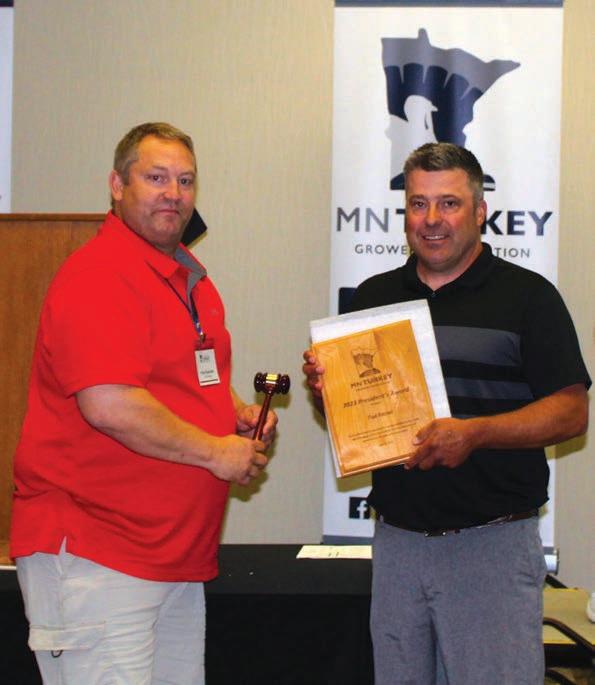
The 2023 Ranelius Award recipients, Vernal and Marlene Nelson, are well deserving of this honor, MTGA said. Raised on Oakdale Farm in Kensington, Minn., Vernal was brought up with a dedication to farming. His family grew crops, cattle, and turkeys. Marlene joined Vernal on the farm in 1963. Together, they raised both commercial and breeding birds, selling eggs to Land O’ Lakes and Willmar Poultry Co.
Vernal has been an active member of MTGA, serving as board member and Marlene chaired Minnesota Women for turkey.
“Oakdale Farm and the turkey industry has been Marlene and Vernal’s entire life,” Westbrock said. “They continue to be passionate about the turkey industry — passing that passion on to the next generations.”
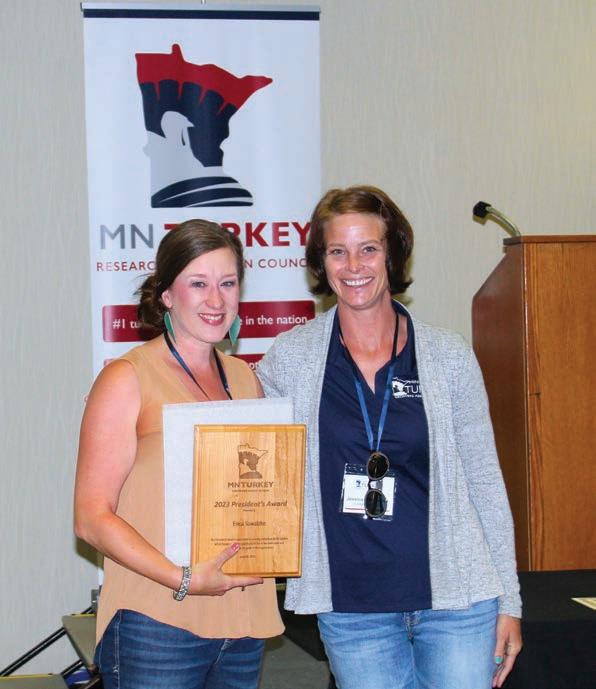
WASHINGTON — The National Oceanic and Atmospheric Administration’s National Hurricane Center — a division of the National Weather Service — has a new model to help produce hurricane forecasts this season.
The Hurricane Analysis and Forecast System (HAFS) was recently put into operation and will run alongside existing models for the 2023 season before replacing them
as NOAA’s premier hurricane forecasting model.

“The quick deployment of HAFS marks a milestone in NOAA’s commitment to advancing our hurricane forecasting capabilities, and ensuring continued improvement of services to the American public,” said NOAAAdministrator Dr. Rick Spinrad. “Development, testing and evaluations were jointly carried out between scientists at NOAA Research and the National Weather Service, marking a seamless transition from development to operations.”
Running the experimental version of HAFS from 2019 to 2022 showed a 10 to 15 percent improve-

ment in track predictions compared to NOAA’s existing hurricane models. HAFS is expected to continue increasing forecast accuracy, therefore reducing storm impacts to lives and property.
HAFS is as good as NOAA’s existing hurricane models when forecasting storm intensity — but is better at predicting rapid intensification, the administration said. HAFS was the first model last year to accurately predict that Hurricane Ian would undergo secondary rapid intensification as the storm moved off the coast of Cuba and barreled toward southwest Florida.
During the next four years, HAFS will undergo several major upgrades, ultimately leading to even more increased accuracy of forecasts, warnings and life-saving information. An objective of the NOAA Hurricane Forecast Improvement Program (HFIP)offsite link is, by 2027, to reduce all model forecast errors by
nearly half compared to errors seen in 2017.
HAFS provides more accurate, higher-resolution forecast information both over land and ocean and is comprised of five major components: a high-resolution moving nest; high-resolution physics; multi-scale data assimilation that allows for vortex initialization and vortex cycling; 3-D ocean coupling; and improved assimilation techniques that allow for the assimilation of novel observations. The foundational component is the moving nest, which allows the model to zoom in with a resolution of 1.2 miles on areas of a hurricane that are key to improving wind intensity and rain forecasts.
“With the introduction of the HAFS forecast model into our suite of tropical forecasting tools, our forecasters are better equipped than ever to safeguard lives and property with enhanced accuracy and timely warnings,” said Ken Graham, director of NOAA’s National Weather Service. “HAFS is the result of strong collaborative efforts throughout the science community and marks significant progress in hurricane prediction.”

(July 18): The market on frozen 8-16 lb. hens and 16-24 lb. toms was steady with steady to weak undertones. The November fresh market on hens and consumer sized toms was steady with steady to weak undertones. Demand light. Offerings mostly moderate with supplies held with varying degrees of confidence. Frozen domestic Grade A basted equivalent processor offering prices on a national basis for 8-16 lb. hens are $1.21-$1.49 f.o.b. and 16-24 lb. toms
$1.21-$1.49 f.o.b. for current shipments. The fresh tom breast meat market was steady. Demand and offerings moderate. Frozen tom breast meat was steady to weak. Fresh tom breast meat demand and offerings moderate. Frozen demand light to moderate. Offerings at least moderate. Destrapped tenderloin and white trim markets are steady weak. Further processed demand moderate to good, mostly moderate with the hot summer like weather in parts of the country sparking demand. The market on consumer and institutional sized breasts was steady to weak. Offerings mixed, mostly moderate. The market on tom drums was steady at best, tom wings and necks steady to weak. Offerings moderate to moderately heavy. The market on hen 2-joint wings was mostly steady, balance of hen parts steady to weak. Demand light. Offerings moderate to moderately heavy. The thigh meat and bone-in thigh markets were steady with steady to weak undertones. Demand light to moderate. Offerings mixed, mostly moderate. The mechanically separated turkey market was steady. Fresh offerings mostly moderate. Frozen offerings light at best. Trading slow, the USDA Agricultural Marketing Service reports.
Broiler: Estimated slaughter for week ending July 15 was 157,425,000.
Actual slaughter for the week ending July 8 was 138,883,000.
Heavy-type hen: Estimated slaughter for the week ending July 15 was 1,908,000.
Actual slaughter for the week ending July 8 was 1,251,000.
Light-type hen: Estimated slaughter for the week ending July 15 was 751,000. Actual slaughter for the week ending July 8 was 462,000.
Total: July 15: 160,084,000; July 8: 140,596,000.
Negotiated prices in trucklot and less-than-trucklot quantities of ready-to-cook whole body broiler/fryers delivere d to first receivers; prices in cents per pound




